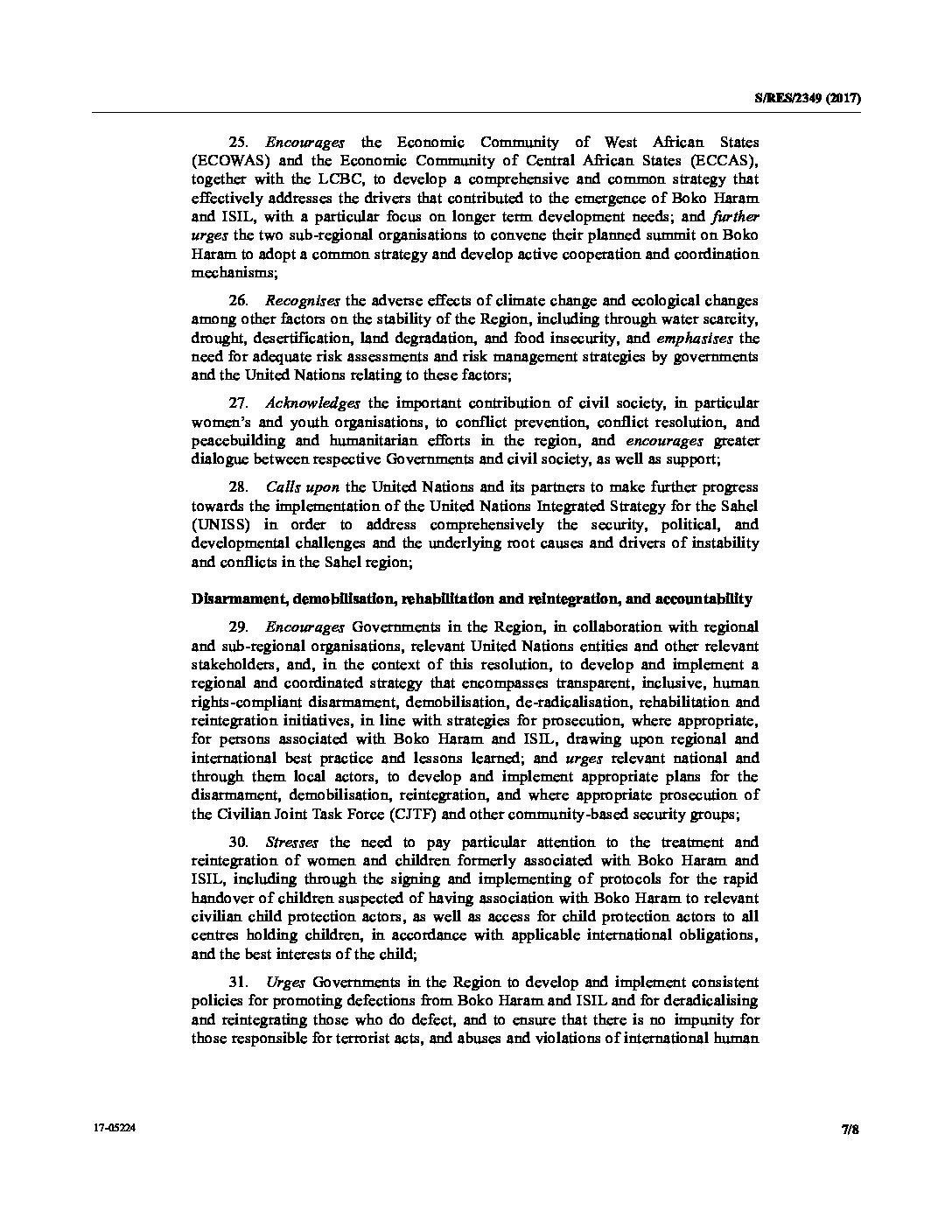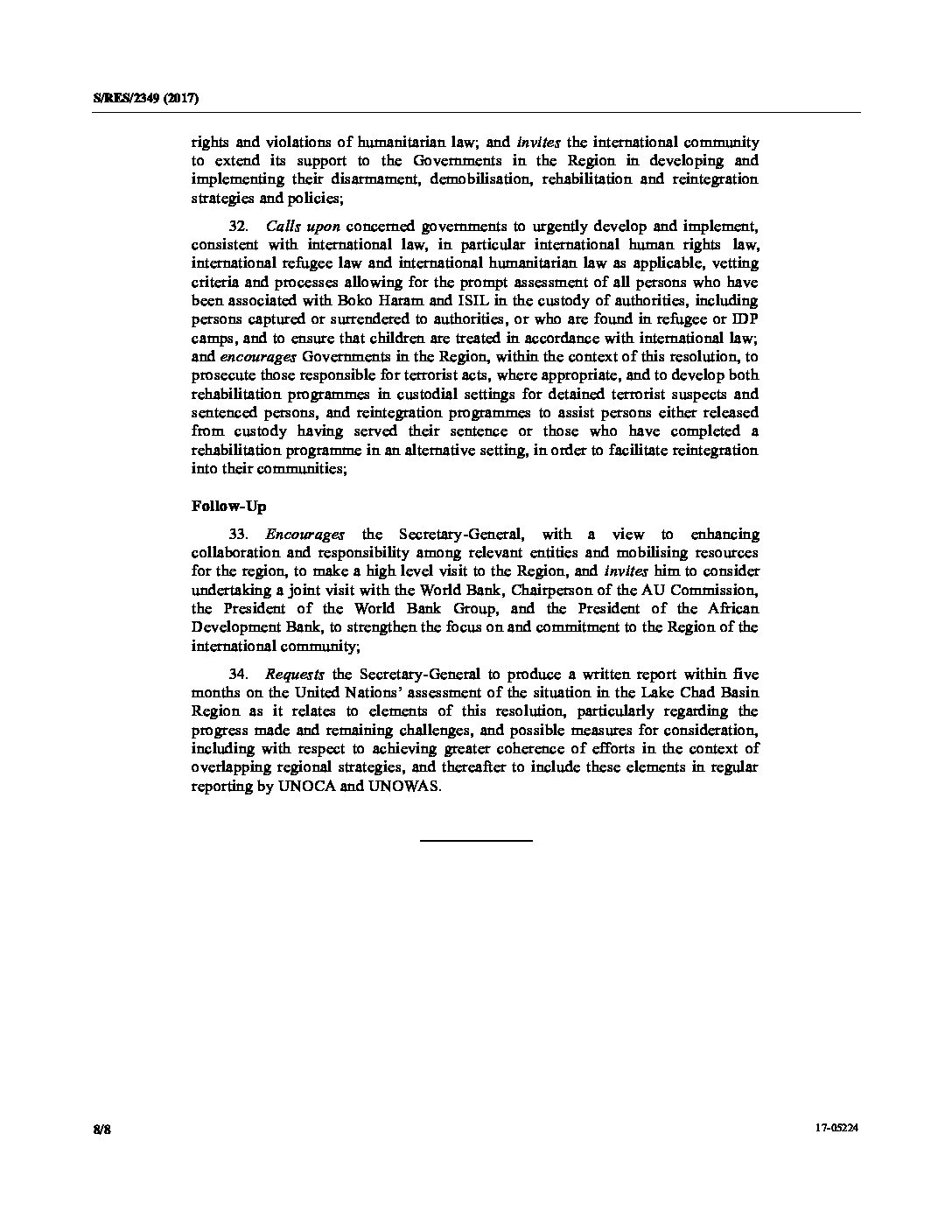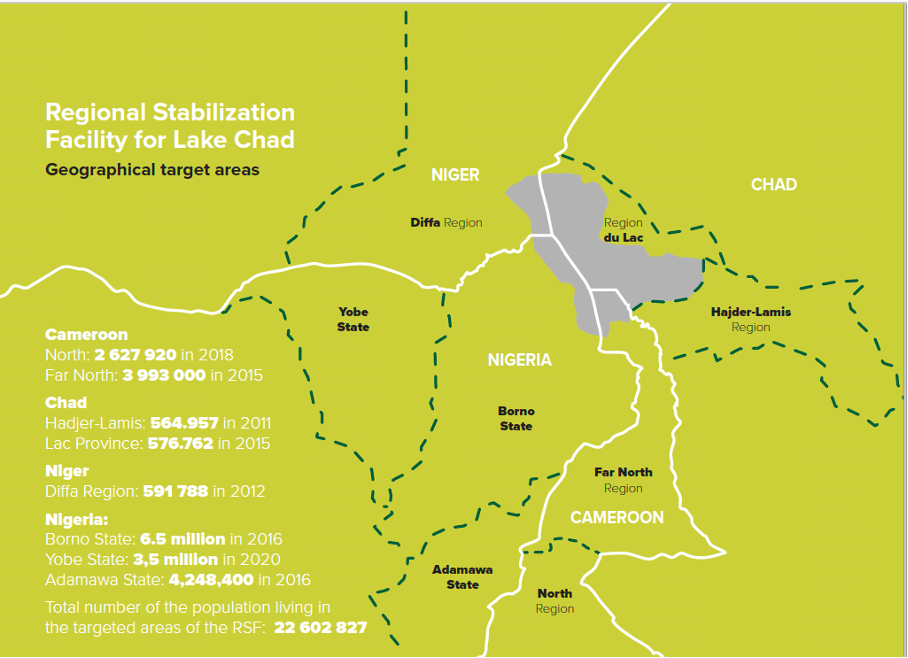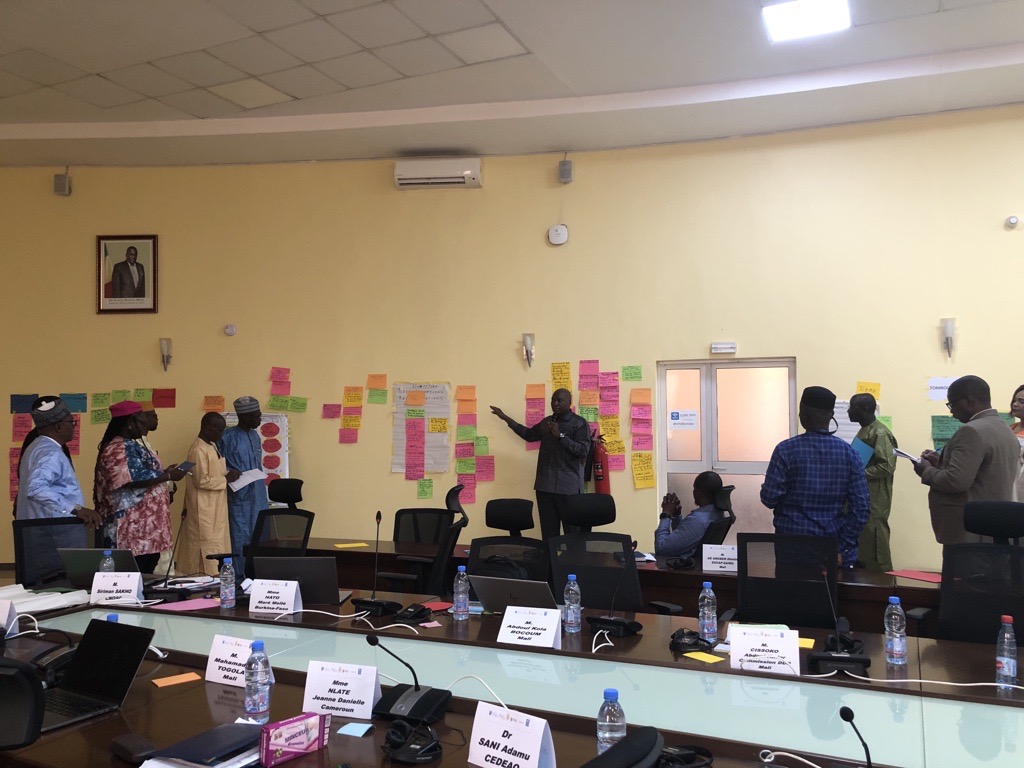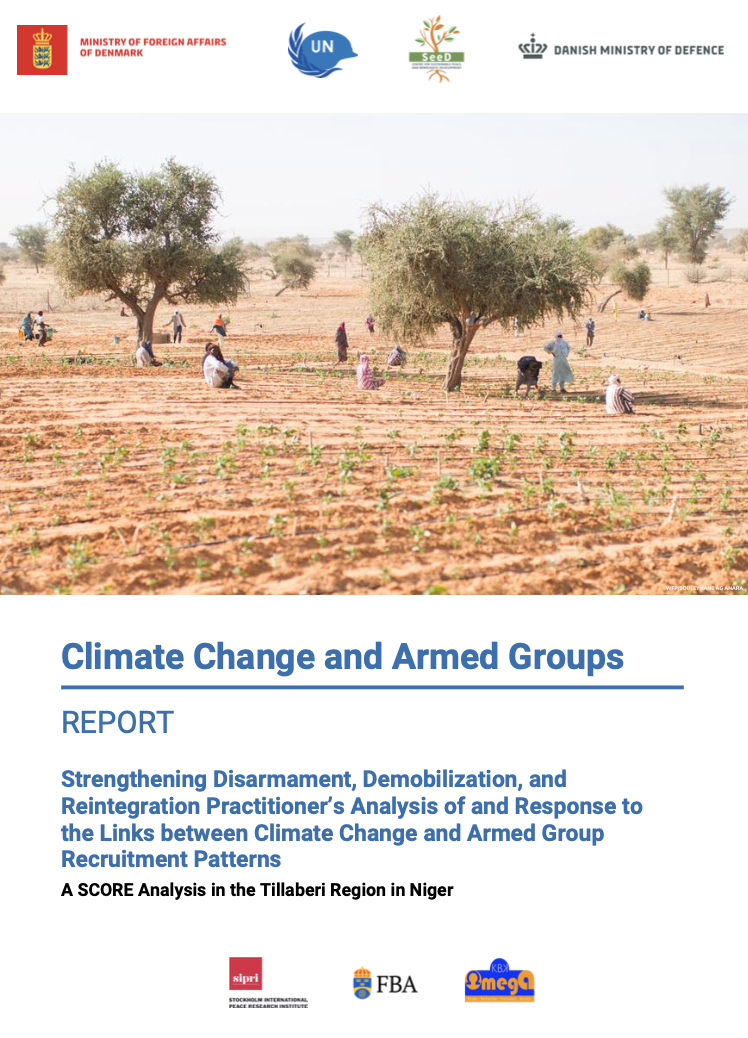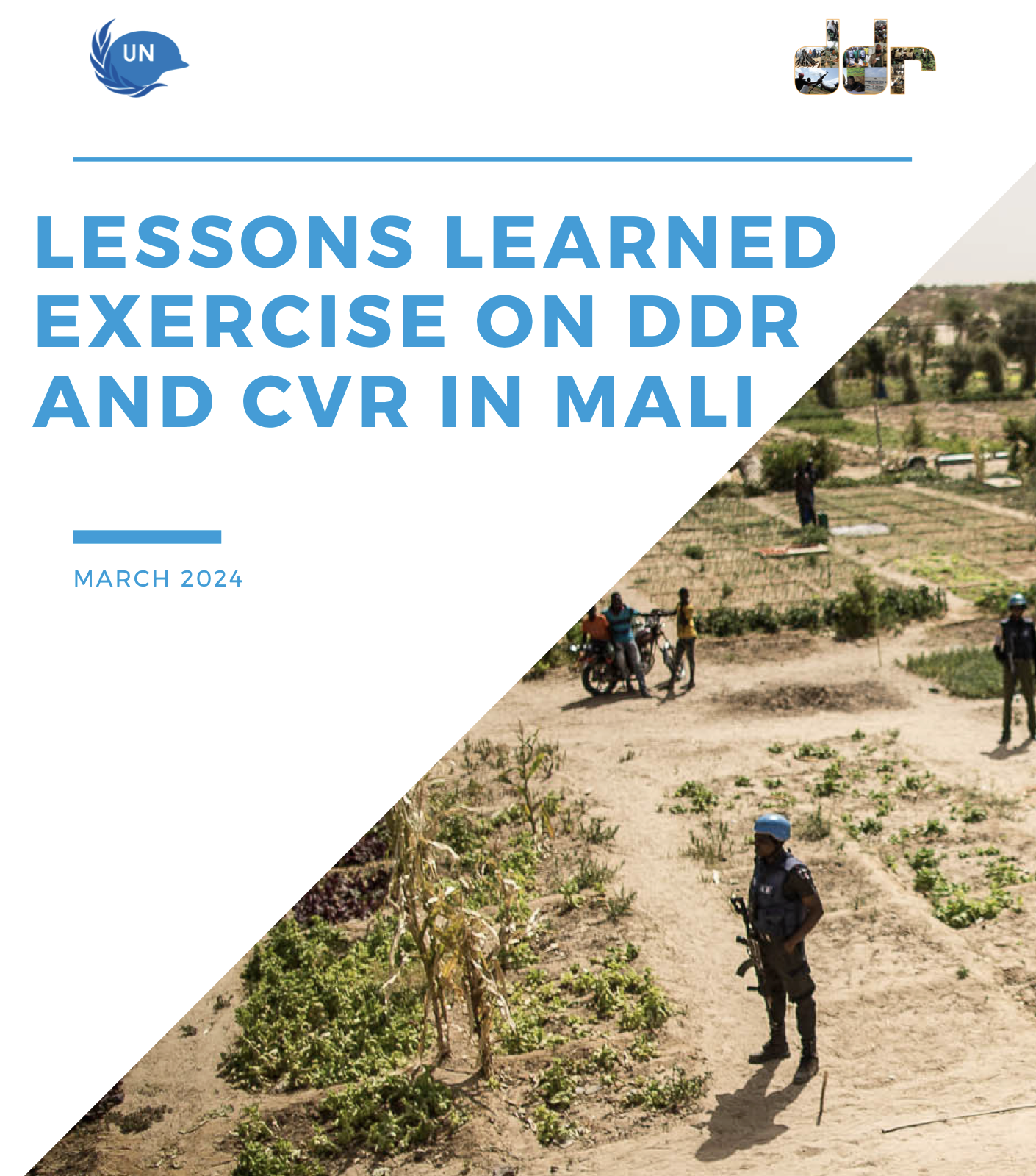![Bulletin Banner v2[40]](https://www.unddr.org/wp-content/uploads/2024/05/Bulletin-Banner-v240-scaled.jpg)
CONTENTS
1.
NON-MISSION SETTINGS
2.
DDR SECTION Mandate IN NON-MISSION SETTINGS
3.
DDR SECTION IN ACTION IN NON-MISSION SETTINGS
4.
NEW CHALLENGES CREATE NEW OPPORTUNITIES
5.
FIELD UPDATES
6.
IDDRS UPDATES
7.
Recent publications
8.
Upcoming events and trainings
1.NON-MISSION SETTINGS
Contents:
- the Peace and Security Architecture Reform
- interview with the UN Assistant Secretary-General for Rule of Law and Security Institutions, Mr. Alexandre Zouev
- the Impact of DDR Section Support in Non-Mission Settings
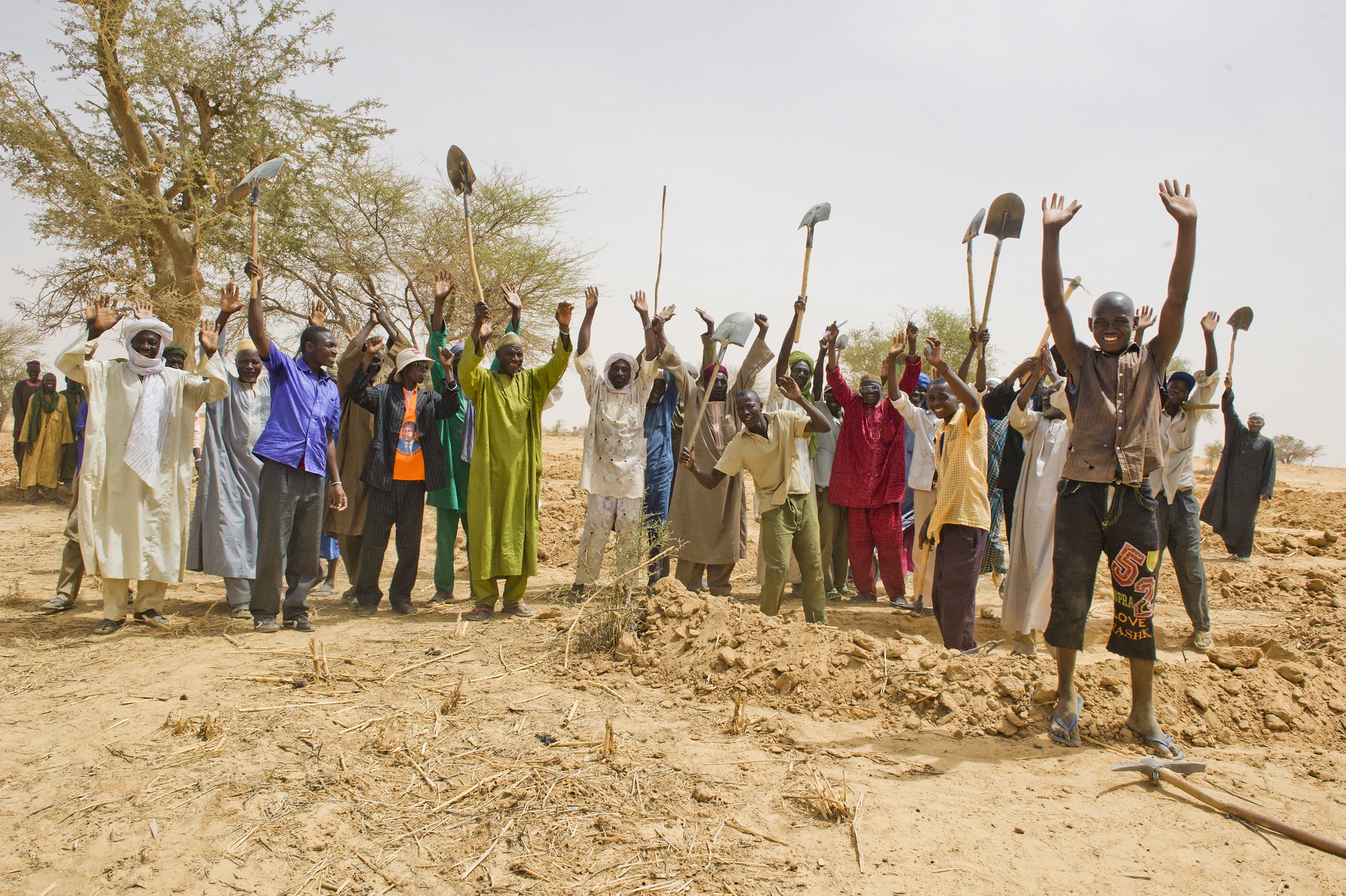
The changing security landscape in the past decade has led the Disarmament, Demobilization and Reintegration (DDR) Section in the Office of Rule of Law and Security Institutions (OROLSI) in the UN Department for Peace Operations (DPO) to adapt its role to address challenges and changing conflict dynamics that include a proliferation and cross-border expansion of armed groups, a lack of minimum security, increased violence, absence of peace agreements, and a rise in violent extremism or terrorism including the presence of Armed Groups Designated as Terrorist Organisations (AGDTOs).
In this new environment, the demand for DDR advice and support has increased, specifically requests for support from the DDR Section to Special Political Missions and Non-Mission Settings grew both in volume and in scope.
DDR Section Engagement in 2006
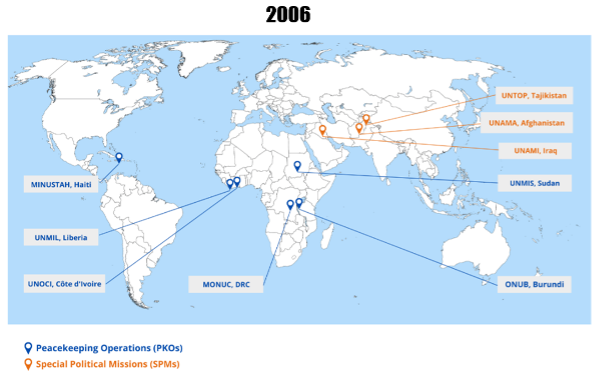
This map illustrates the global footprint of the DDR Section’s involvement in non-mission settings as of 2006. Highlighted are the locations where the United Nations has deployed peacekeeping and political missions with significant DDR components. These missions include MINUSTAH in Haiti, UNMIL in Liberia, UNOCI in Côte d’Ivoire, MONUC in the Democratic Republic of the Congo, ONUB in Burundi, UNMIS in Sudan, UNAMI in Iraq, UNAMA in Afghanistan, and UNTOP in Tajikistan. Each point on the map represents a critical effort by the DDR Section to facilitate disarmament, demobilization, and reintegration processes in post-conflict settings, aiming to achieve sustainable peace and stability in regions fraught with historical conflicts.module Design settings and even apply custom CSS to this text in the module Advanced settings.
DDR Section Engagement in 2023/2024

The 2023-2024 map showcases the extensive and dynamic involvement of the DDR Section across various global settings, both in established UN missions and non-mission contexts. The map shows ongoing efforts in regions with active UN missions including UNSMIL in Libya, MINUSMA in Mali, BINUH in Haiti, UNVMC in Colombia, MINUSCA in the Central African Republic, MONUSCO in the Democratic Republic of the Congo, O-SESG-S in the Sahel, UNAMI in Iraq, UNITAMS in Sudan, O-SESG-Y in Yemen, UNOAU in the Horn of Africa, UNSOM in Somalia, UNMISS in South Sudan, O-SESG in the Middle East, and O-SESG-GL in the Great Lakes region. Additionally, the map indicates the DDR Section’s strategic interventions in non-mission settings such as Burkina Faso, Sierra Leone, Côte d’Ivoire, the Lake Chad Basin, Cameroon, Republic of Congo, Thailand, Ethiopia, and Mozambique. These DDR Section’s broad mandate attributes to it a key role in supporting disarmament, demobilization, and reintegration initiatives that aim to foster peace and stability in post-conflict scenarios and regions at risk.
In light of these changes and the increased demand, the DDR Section has, since 2019, increasingly been involved in so-called Non-Mission Settings. These are country settings in which no UN peace operation is deployed, including no Peacekeeping Operation, Special Political Mission, regional or liaison office, or country-specific good office arrangement such as a Special Envoy. In these environments, the highest UN authority is the UN Resident Coordinator. The work in Non-Mission Settings has prompted DDR practitioners to collaborate with a range of different actors. In these settings, the DDR Section support is provided upon request from:
- national governments,
- UN Resident Coordinators,
- regional organization,
- or third parties.
THE PEACE AND SECURITY ARCHITECTURE REFORM: THE OFFICE OF RULE OF LAW AND SECURITY INSTITUTIONS AS A UN SYSTEM-WIDE SERVICE PROVIDER
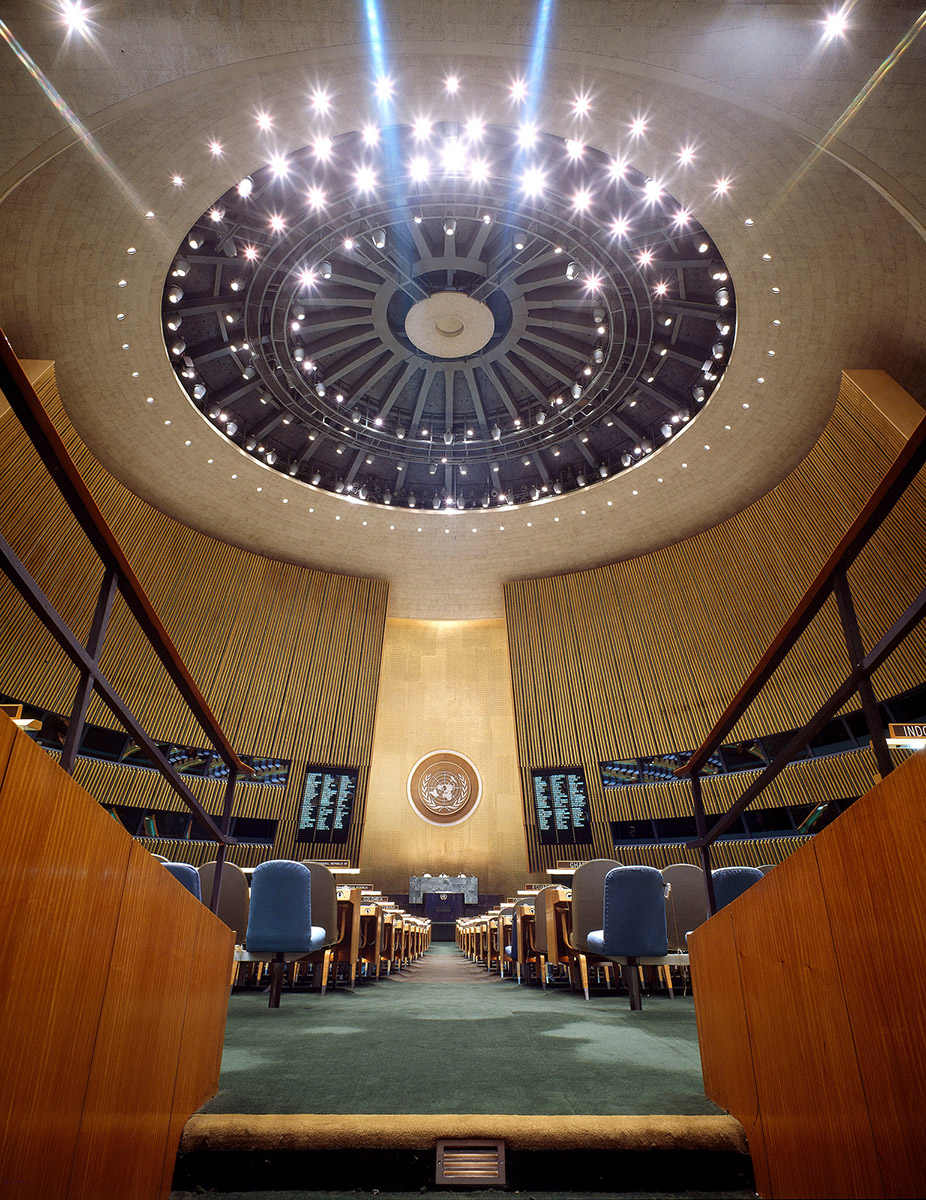
The changed security landscape and increased demand for DDR support correlated with an institutional reform. As part of a broader series of reforms within the United Nations, the 2019 Peace and Security Architecture Reform designated the Office of Rule of Law and Security Institutions (OROLSI) as a “system-wide service provider”. Consequently, its support extends to UN peace operations, as well as to Member States and UN system entities in Non-Mission Settings. The overall goals of the Peace and Security Reform were to
- prioritise prevention and sustaining peace,
- enhance the effectiveness and coherence of peacekeeping operations and special political missions, while
- moving towards a single, integrated peace and security pillar.
The Reform is a testimony of the will for an evolution in the UN approach to peace and security. It transported brand new engagement modalities for OROLSI components including the DDR Section.
The Assistant Secretary-General for Rule of Law and Security Institutions, Mr. Alexandre Zouev, on the role of the Office of Rule of Law and Security Institutions as a system-wide service provider
The Assistant Secretary-General for Rule of Law and Security Institutions, Mr. Alexandre Zouev, on the DDR Section’s Support in Non-Mission Settings going forward
The Impact of DDR Section Support in Non-Mission Settings
The support to DDR interventions in Non-Mission Settings has been impactful. The DDR Section has offered impartial advice and support, blending technical and political expertise with an understanding of programmatic nuances. This support has been highly regarded, seen as of excellent quality, timely, and sustained over time when necessary. The DDR Section has played a crucial role in securing longer-term DDR support for Non-Mission Settings by leveraging synergies with other projects and partners, and by deploying DDR expertise, including the DDR Standing Capacity, consultants, and external partners.
The support of the DDR Section in Non-Mission-Settings and to Special Political Missions has been enabled through the political support and generous voluntary contributions from donors. Since 2017, Germany has been supporting the DDR Section’s support to Special Political Missions and has expanded this support in 2019 to include Non-Mission Settings.
Interview with Tilmann Scherf, Political Officer at the Permanent Mission of Germany to the UN
2. DDR Section Mandate in Non-Mission Settings
Contents:
- DDR Section involvement mechanisms in Non-Mission Settings
- DDR Section services and instruments in Non-Mission Settings
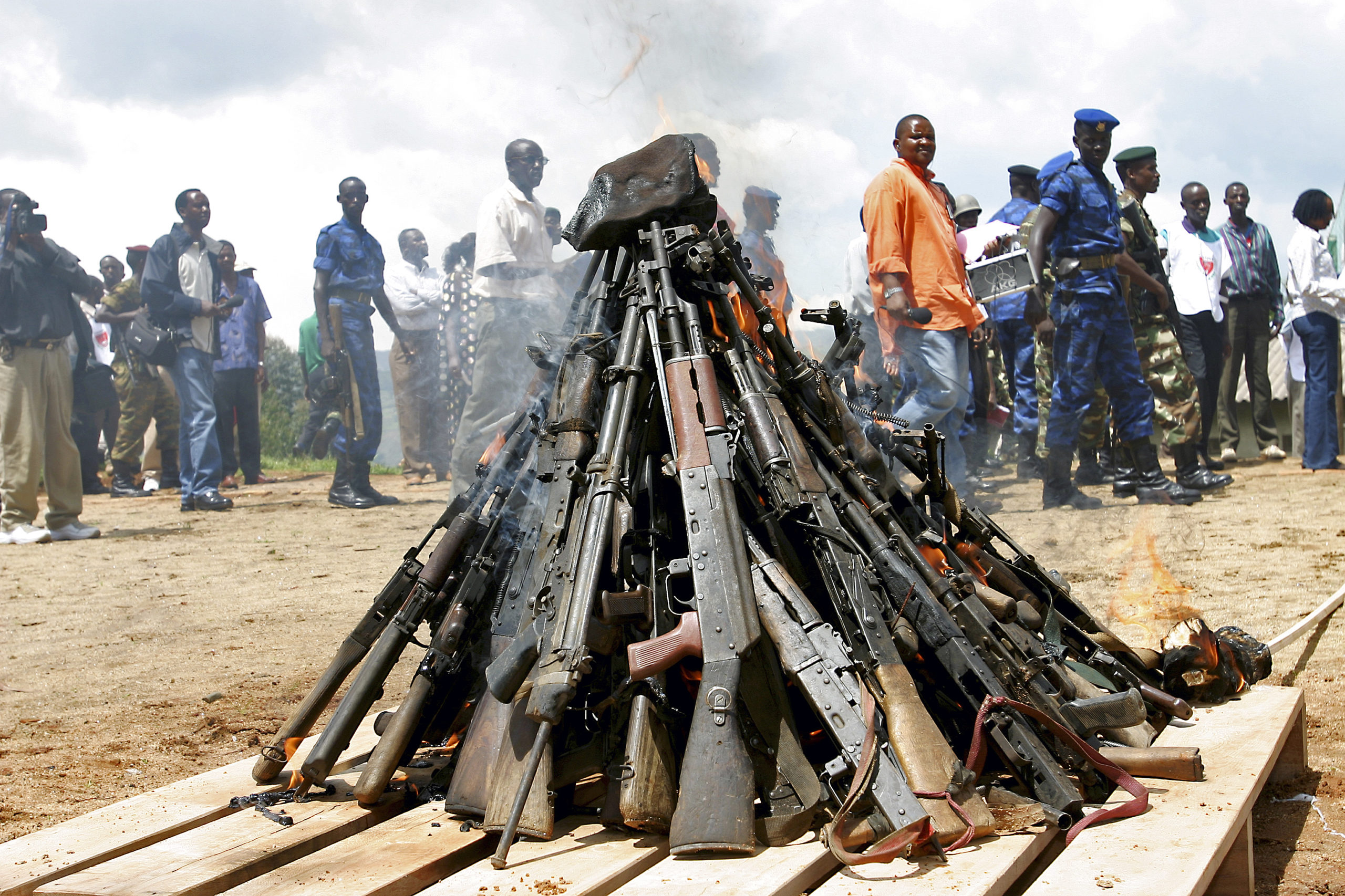
Involvement Mechanisms of the DDR Section
Presently, DDR Section staff members are involved in DDR processes across Peacekeeping Operations (PKOs), Special Political Missions (SPMs), and Non-Mission Settings (NMSs). The extent of their engagement fluctuates based on field dynamics, operational needs, and requests from the Secretariat, RCOs/field missions, host governments and regional organizations. DDR is not limited to post-conflict scenarios. In recent years, DDR practitioners have increasingly been deployed in settings lacking the necessary preconditions for a DDR program, including a signed peace agreement. In some cases, although a peace agreement may have been signed, armed groups have either lost trust in the peace process or violated the terms of the agreement. In other instances, in settings with multiple armed groups, some factions may adhere to a peace agreement while others do not. Additionally, in environments conducive to violent extremism and terrorism, the likelihood of peace agreements is remote. Integrated DDR efforts face challenges not only due to the absence of ceasefire agreements or peace processes but also because of the proliferation and diversification of armed groups, some of which have ties to transnational networks and organised crime.
Entities to request DDR Involvement and Support
The DDR Section engages with NMSs following requests for support from various origins. These include
- DPPA-DPO desk officers and/or
- the Secretary-General Executive Committee in New York (e.g. NMSs in Afghanistan, Mozambique, Burkina Faso, Chad)
- Special Political Missions that have a mandate for DDR or CVR, like those in Colombia, Haiti, and Somalia.
Additionally,
- the Resident Coordinator’s Office (RCO) in the field typically responds to requests from the host country (e.g. in non-mission settings including in Chad, the Republic of Congo, Angola, Sierra Leone, Ethiopia);
- In some cases, requests come directly from the host country or member states, often in the form of a Note Verbale (e.g. in Chad and Cameroon);
- Third countries involved may also seek support from the DDR Section, as seen in the NMS in Mozambique. Regional and sub-regional organisations, such as the African Union and the Lake Chad Basin, also play a role in requesting DDR support for NMSs.
What instruments does the DDR Section have to support in Non-Mission Settings?
SCOPE OF WORK
![Available Services and Support by DDRS_Brochure_March2024[13]](https://www.unddr.org/wp-content/uploads/2024/05/Available-Services-and-Support-by-DDRS_Brochure_March202413-pdf.jpg)
Areas of Services and Support
The DDR Section works across the entire peace continuum with UN entities, Member States, Regional Organizations and other partners towards mitigating the threats posed by armed groups, encouraging their members to lay down their arms, demobilize and reintegrate into civilian life. The DDR Section provides numerous services in Non-Mission Settings.
Areas of services and support include the following:
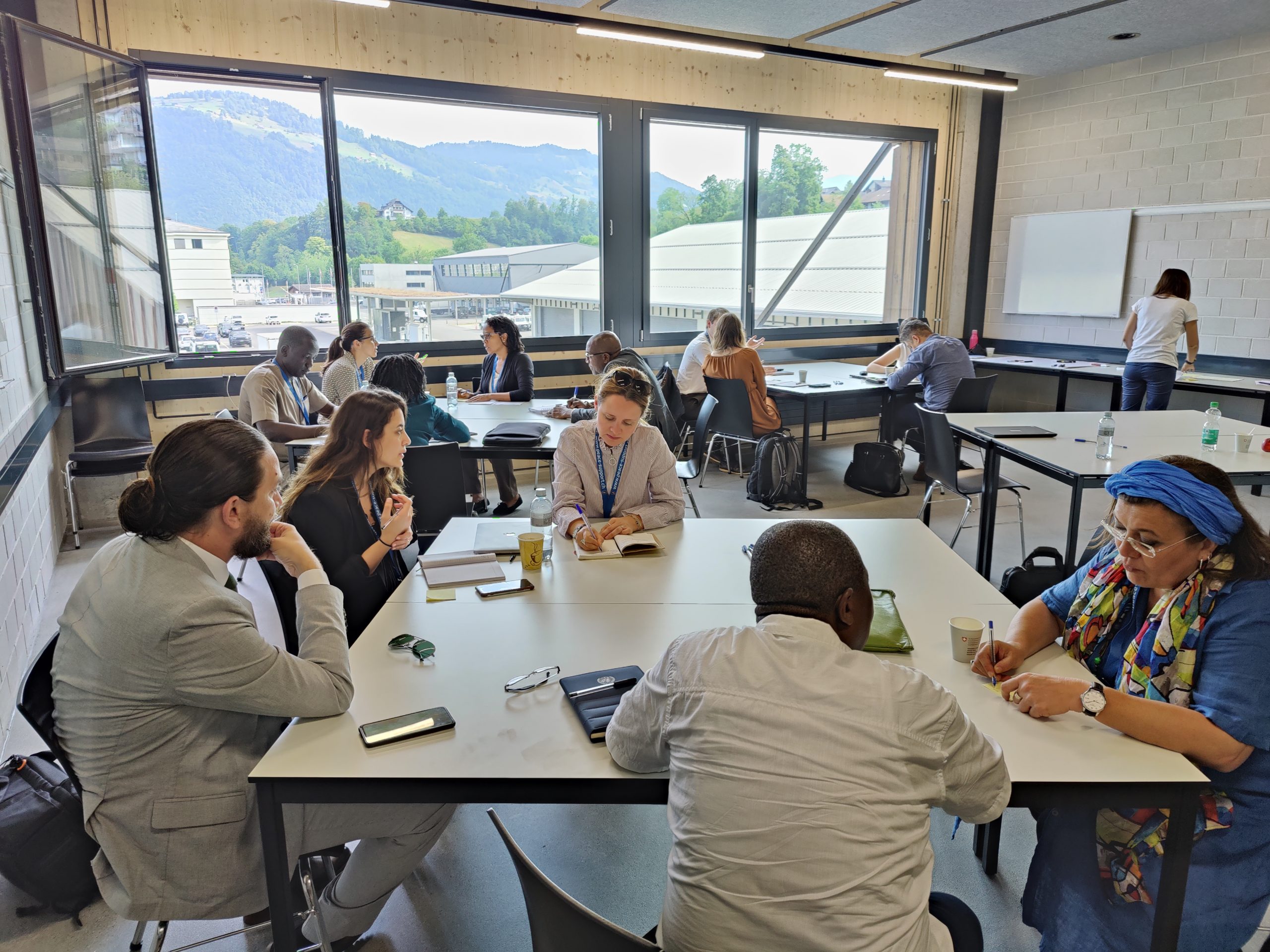
Policy & Guidance
The DDR Section plays a pivotal role in developing, updating, and consulting on leading DDR, CVR, and Weapons and Ammunition Management (WAM) policies and guidance based on the Integrated DDR Standards (IDDRS). This includes offering technical assistance to enhance national institutional capacities, which involves supporting the creation of strategies, Standard Operating Procedures (SOPs), guidelines, and policies. Additionally, the section conducts research to inform DDR strategies and formulates recommendations tailored to the needs of national authorities and other stakeholders. By analyzing local contexts and mapping armed groups, the DDR section ensures that interventions are specifically tailored to address the unique conflict dynamics of each situation, facilitating more effective programmatic engagement with armed groups. Additionally, the DDR Section conducts technical assessment missions. Examples include to the Republic of Congo-Brazzaville, Sierra Leone, Cameroon, Nigeria, and Haiti.
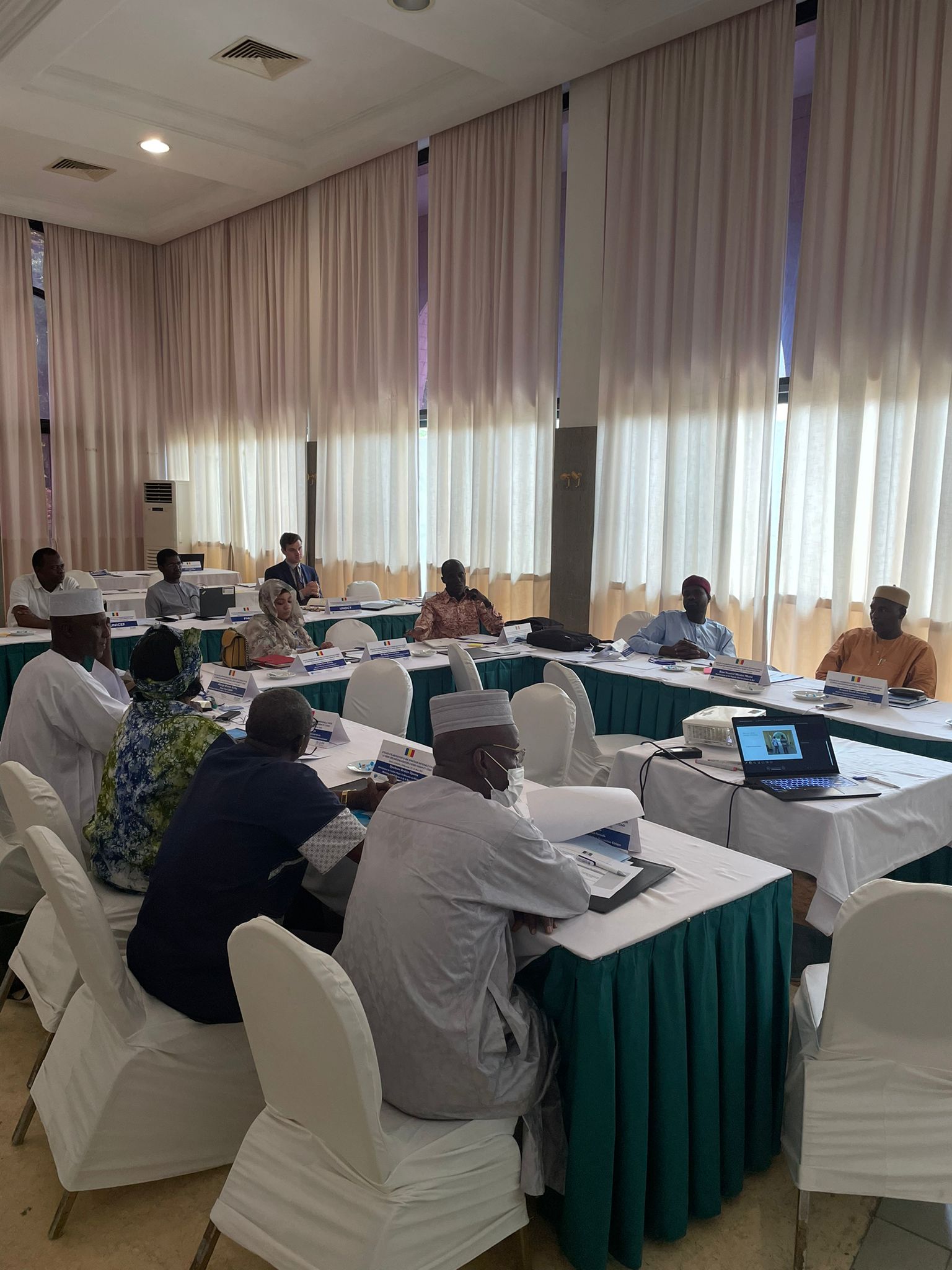
Strategic Design & Roll Out
The DDR Section provides crucial planning support and coaching to national authorities for the design and implementation of gender-responsive national DDR processes. This support extends to the strategic design and rollout of related tools such as CVR and Transitional WAM (T-WAM), and includes assistance for programs aimed at disengaging individuals from armed groups designated as terrorist organizations. The section also supports UN Secretariat and Agencies Funds and Programmes on DDR and can deploy DDR Standing Capacity experts for targeted purposes. Monitoring and evaluation of DDR processes are integral to consolidating lessons learned and best practices, ensuring continuous improvement in DDR efforts.

Mediation & Policy Support
In mediation and political support, the DDR Section deploys experts who provide negotiation advice and support the drafting of agreements for engaging with armed groups. This support is part of broader mediation, ceasefire, or peace agreement processes and includes political reintegration and transformation support for ex-combatants. By leveraging the expertise of leading experts and institutions, the DDR section enhances the effectiveness of political processes and engagements with armed groups.
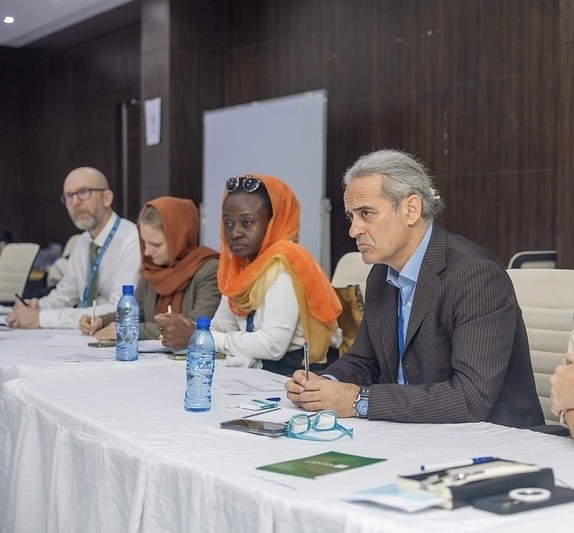
Coordination and Partnerships
The DDR Section assists national institutions in creating effective coordination and partnership mechanisms to implement DDR, CVR, and WAM activities. It supports the development of regional approaches to DDR and strengthens UN system-wide coordination, ensuring alignment with broader UN agendas like Youth Peace & Security and Women Peace & Security. The section also facilitates peer-to-peer learning, South-South cooperation, and engagement among UN entities, national stakeholders, and the DDR community, including training centers and think tanks. Furthermore, it promotes participation in networks such as the Inter Agency Working Group on DDR and the DDR National Commission Network.
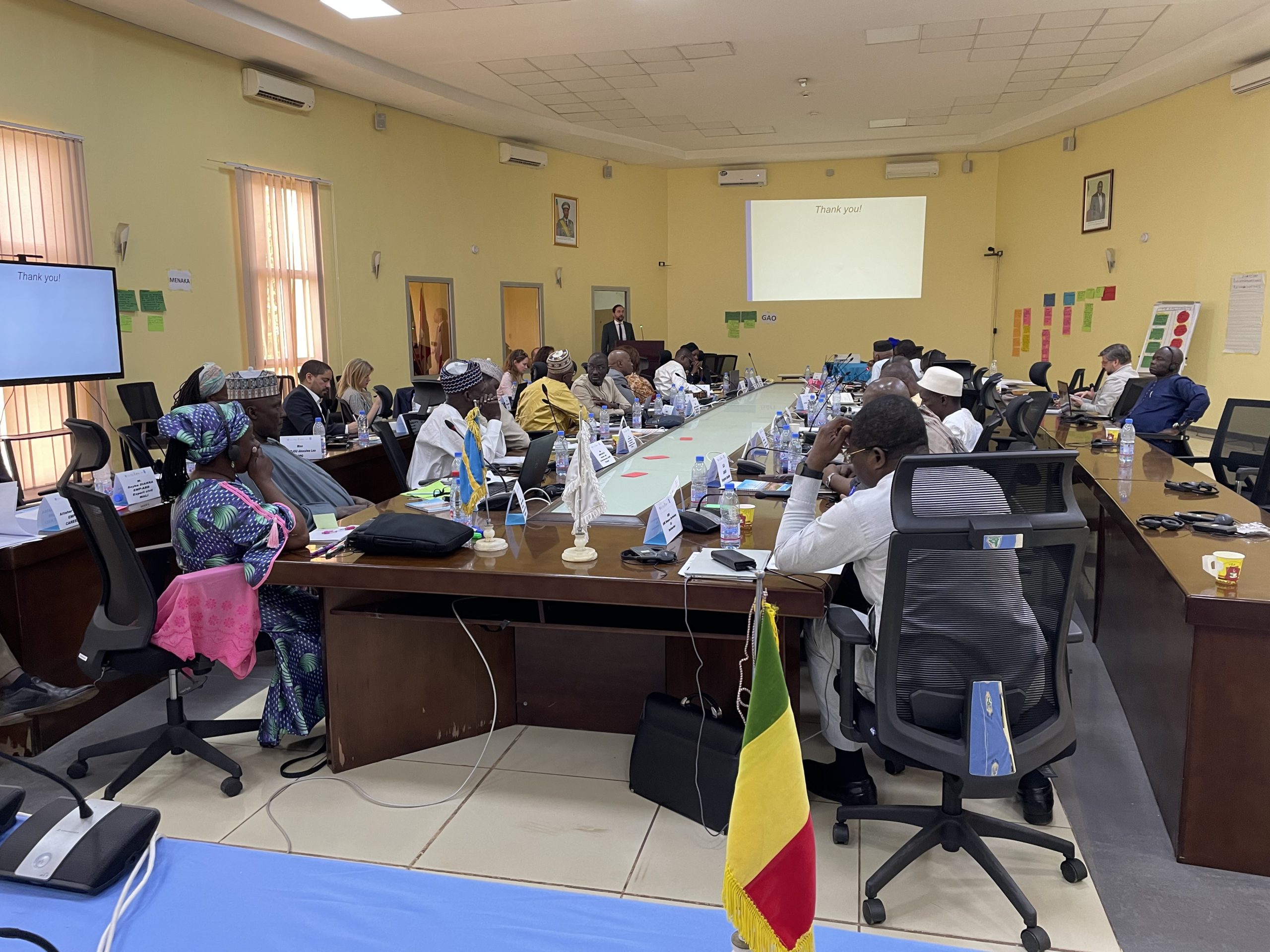
Capacity Building & Training
The DDR Section provides tailored training and capacity-building programs for stakeholders involved in DDR efforts, including both UN and national stakeholders. These programs are designed to enhance skills and understanding necessary for effective DDR implementation and include Training of Trainers (TOT) programs. The section actively participates in and provides linkages to leading DDR training institutions through the Integrated DDR Training Group (IDDRTG), enhancing the training landscape for DDR professionals. The DDR Section also facilitates South-South cooperation and peer-learning as for example between Colombia and various other contexts, as well as with Haiti’s CVR experience to inform the Republic of Congo-Brazzaville.

Advocacy & Finance
In advocacy and finance, the DDR Section serves as a vital entry point for engaging with the UN system and Member States on DDR issues, facilitated through the Group of Friends on DDR. It promotes South-South cooperation by connecting relevant stakeholders across different countries and contexts. Additionally, the section provides visibility and support to on-the-ground DDR teams, including advocacy with member states and partners, and financial institutions, to secure the necessary backing and resources for DDR initiatives.Additionally, the support extends to DDR/CVR during UN transitions, such as the transition in Haiti from the peacekeeping mission (MINUJUSTH) to the Special Political Mission (BINUH), as well as the start-up of the Special Political Mission in Sudan (UNITAMS). In all these options, the emphasis is on a comprehensive, context-specific, and participatory approach to DDR, recognising the unique challenges and opportunities each setting presents.
3. DDR Section in Action in Non-Mission Settings
Contents:
- Lake Chad Basin
- Stabilization Strategy for Boko-Haram Affected Areas
- Weapons and Ammunition Dynamics
- Chad
- Cameroon
- The Great Lakes Region
- Mozambique
- Niger
- Greater Sahel
3.1 LAKE CHAD BASIN

In the Lake Chad Basin, the DDR Section faced various challenges, including political instability, a diverse array of non-state armed groups, a focus on military operations and counterterrorism measures, and limited institutional capacities. Pursuant to the United Nations Security Council Resolution 2349 (operative clauses 29-32), the DDR Section has continuously supported the Lake Chad Basin Commission (LCBC) towards the operationsalization of the development of the Regional Stabilisation Strategy for Boko Haram-affected areas: (“Regional Strategy for the Stabilization, Recovery, and Resilience of the Boko Hara-Affected Areas (RS-SRR)”)
Encourages Governments in the Region, in collaboration with regional
and sub-regional organisations, relevant United Nations entities and other relevant
stakeholders, and, in the context of this resolution, to develop and implement a
regional and coordinated strategy that encompasses transparent, inclusive, human
rights-compliant disarmament, demobilisation, de-radicalisation, rehabilitation and
reintegration initiatives, in line with strategies for prosecution, where appropriate,
for persons associated with Boko Haram and ISIL, drawing upon regional and
international best practice and lessons learned; and urges relevant national and
through them local actors, to develop and implement appropriate plans for the
disarmament, demobilisation, reintegration, and where appropriate prosecution of
the Civilian Joint Task Force (CJTF) and other community-based security groups;
Stresses the need to pay particular attention to the treatment and
reintegration of women and children formerly associated with Boko Haram and
ISIL, including through the signing and implementing of protocols for the rapid
handover of children suspected of having association with Boko Haram to relevant
civilian child protection actors, as well as access for child protection actors to all
centres holding children, in accordance with applicable international obligations,
and the best interests of the child;
Urges Governments in the Region to develop and implement consistent
policies for promoting defections from Boko Haram and ISIL and for deradicalising
and reintegrating those who do defect, and to ensure that there is no impunity for
those responsible for terrorist acts, and abuses and violations of international human
rights and violations of humanitarian law; and invites the international community
to extend its support to the Governments in the Region in developing and
implementing their disarmament, demobilisation, rehabilitation and reintegration
strategies and policies;
Calls upon concerned governments to urgently develop and implement,
consistent with international law, in particular international human rights law,
international refugee law and international humanitarian law as applicable, vetting
criteria and processes allowing for the prompt assessment of all persons who have
been associated with Boko Haram and ISIL in the custody of authorities, including
persons captured or surrendered to authorities, or who are found in refugee or IDP
camps, and to ensure that children are treated in accordance with international law;
and encourages Governments in the Region, within the context of this resolution, to
prosecute those responsible for terrorist acts, where appropriate, and to develop both
rehabilitation programmes in custodial settings for detained terrorist suspects and
sentenced persons, and reintegration programmes to assist persons either released
from custody having served their sentence or those who have completed a
rehabilitation programme in an alternative setting, in order to facilitate reintegration
into their communities;
LAKE CHAD BASIN STABILISATION STRATEGY FOR BOKO-HARAM-AFFECTED AREAS
The DDR Section supports the regional strategy Pillar 3 on Disarmament, Demobilization, Rehabilitation, Reinsertion and Reintegration (DDRRR). In line with the Strategic Objectives under Pillar 3 on DDRR, the support provided by the DDR Section entails
- providing direct policy and technical assistance on DDR;
- participating in various coordination mechanisms including the LCB Governors’ Forum;
- contributing to the development of territorial action plans;
- and supporting the development of regional research and policies
Specifically the DDR Section engages in the following areas:
- Strategic Objective 9: Screening and Disarmament
To ensure that persons associated with Boko Haram are received, screened and disarmed according to a common regional approach in line with international and continental standards.
- Strategic Objective 10: Transitional Justice
To strengthen and harmonize National transitional and criminal justice systems to effectively undertake the investigation and prosecution of persons associated with Boko Haram and other forms of accountability.
- Strategic Objective 11: Rehabilitation and Reconciliation
To ensure that persons associated with Boko Haram and other violent extremist groups are rehabilitated according to a common regional approach linked to later reintegration activities and including psychosocial support, health, nutrition (in a first phase) and vocational training and income-generating activities (in a second phase).
- Strategic Objective 12: Reinsertion and Reintegration
To ensure that persons associated with Boko Haram, members of vigilante groups/vigilance committees, returnees (including former prisoners), youth at risk and victims of Boko Haram receive community-based reintegration support, following a harmonized regional approach.
WEAPONS AND AMMUNITION DYNAMICS IN THE LAKE CHAD BASIN
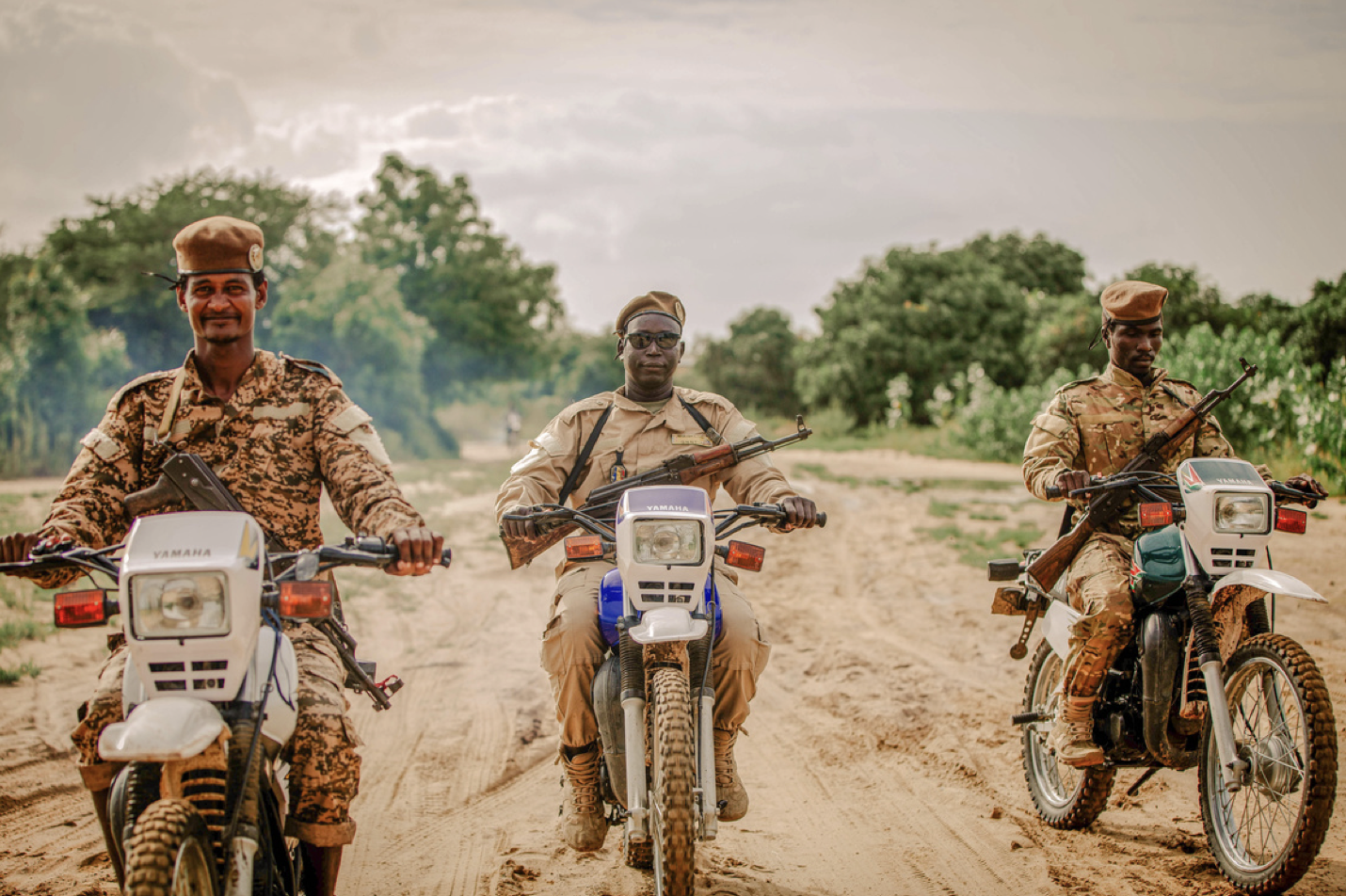
In 2022, the DDR Section also enabled the development of the regional study on Weapons and Ammunition Dynamics in the Lake Chad Basin. The analysis looked at some of the pressing issues of illicit arms trafficking and possession within the Lake Chad Basin, a region impacted by the activities of Boko Haram and the Islamic State West Africa Province (ISWAP). This study specifically pointed out the problematic dynamics of weapon proliferation and the varied responses from local communities and security forces. The findings showcase the urgent need for enhanced regional cooperation and robust national strategies to manage and mitigate the flow of arms in this volatile area. Learn more about the major findings of the study!
Illicit Arms Trafficking and Civilian Possession in the Lake Chad Basin (LCB)
The Lake Chad Basin has seen widespread issues with illicit arms trafficking, influencing regional conflicts. Weapons and ammunition are often sourced from raids, thefts, and corruption involving regional national stockpiles. Materials from previous conflicts are recycled, and some are even produced locally through craft methods. In response to threats from groups like Boko Haram, vigilante groups have emerged, varying in their objectives and the level of government oversight. These groups, which mostly use basic firearms like hunting rifles, play diverse roles depending on community attitudes towards arms ownership—some communities hold cultural attachments to weapons, while others would disarm if the state provided adequate security.
Boko Haram/ISWAP’s Arsenals
Boko Haram and ISWAP obtain their weapons mainly through diversions from national military stockpiles in the Lake Chad Basin and leftover armaments from conflicts such as those in Libya pre-2011. There’s no evidence of direct material support from ISIS to ISWAP, though financial transactions do occur. The tactics of ISWAP have adapted to avoid direct confrontations with stronger military forces like the Nigerian Air Force, opting instead for smaller, guerrilla-style attacks. Significant recoveries of military equipment by the MNJTF highlight ongoing challenges but also successes in counter-terrorism efforts.
National Weapons and Ammunition Management (WAM) Capacity
Countries around Lake Chad, including Cameroon, Chad, Niger, and Nigeria, engage differently with international and regional arms control frameworks. Efforts to enhance Weapons and Ammunition Management (WAM) are varied, focusing e.g. on improving stockpile security, database management for weapons tracking, and the destruction of obsolete ammunition to prevent unplanned explosions and misuse by terrorist groups. These initiatives are crucial in preventing the diversion of materials intended for legitimate security forces to terrorist groups.
Fighting Against Illicit Trafficking and Possession
The Lake Chad basin countries are actively working on multiple fronts to combat illicit weapons trafficking. Initiatives include legal reforms, community awareness programs, and both voluntary and enforced disarmament. Despite these efforts, challenges remain in the form of inadequate national procedures for the handling and documentation of seized weapons, which heightens the risk of these weapons leaking back into illicit channels. Enhancing transparency and record-keeping are essential to mitigate these risks and support broader counter-terrorism and peacebuilding efforts.
DDR/Defector Programmes in the LCB
DDR (Disarmament, Demobilization, and Reintegration) programs in the Lake Chad Basin, though crucial, face significant challenges, particularly regarding the management of military materials surrendered by defectors. Despite the establishment of programs following United Nations Security Council Resolution 2349 (2017), there is a noticeable gap in the focus on the fate of weapons held by former combatants, which affects the effectiveness of these reintegration efforts. Improving coordination between national arms control bodies and DDR authorities could enhance the outcomes of these programs.
The analysis of Weapons and Ammunition Dynamics in the Lake Chad Basin underscores significant challenges in non-mission settings where the DDR Section at UNDPO is actively involved. This study highlights the complex landscape of illicit arms trafficking and civilian possession, fueled by the activities of Boko Haram and ISWAP. These dynamics are critical in non-mission settings as they complicate disarmament and reintegration efforts, essential components of DDR programs. The DDR Section’s role is crucial in developing and supporting regional strategies to enhance weapons management and control, improve security frameworks, and foster cooperation among affected countries. By providing technical assistance, policy guidance, and capacity building, the DDR Section helps mitigate the risks associated with arms proliferation, facilitating more effective disarmament processes and contributing to broader peacebuilding and stabilization efforts in these volatile regions. This integrated approach is vital for transforming the challenges of weapon proliferation into opportunities for sustainable peace and security in non-mission settings.
3.2 CHAD
The case of Chad presents a compelling example of the complexities and crucial importance of DDR processes in non-mission settings. Initiated by the transitional government in April 2021, DDR in Chad is not just a security measure but a pivotal element of the broader peace process aimed at stabilizing the country in the aftermath of political turmoil. This endeavor underscores the potential of DDR to foster long-term peace and address the root causes of conflict.
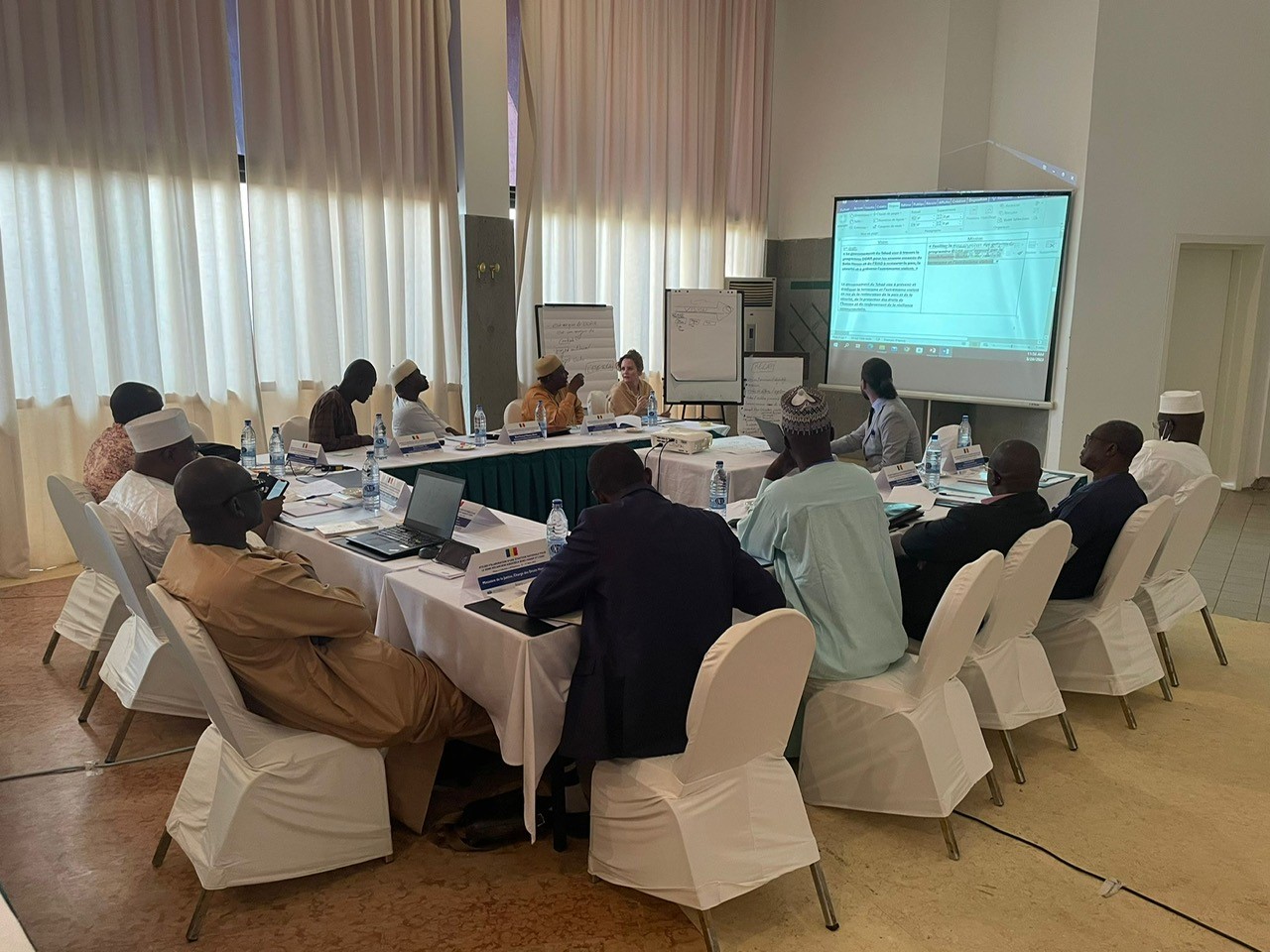
Challenges of Implementing DDR in Chad
The DDR process in Chad has faced numerous challenges, highlighting the difficulties of implementing such initiatives outside of a traditional peacekeeping mission. The Special Technical Committee (CTS), formed to oversee the process, struggled with internal coordination and a lack of transparency, leading to public criticism and distrust among the politico-military groups and civil society. These operational challenges were compounded by institutional weaknesses, including competing claims of authority between different government ministries and a limited specialized DDR expertise within the country.
Additionally, the broader political and security context in Chad has impacted the DDR process. The fragile relationships between the central power and politico-military groups, along with the absence of clear international support, have hindered the progress of negotiations and the effectiveness of the DDR initiatives. The transitional government’s lack of legitimacy and the contested mandate of the CTS further complicated efforts to develop a cohesive national strategy for DDR.
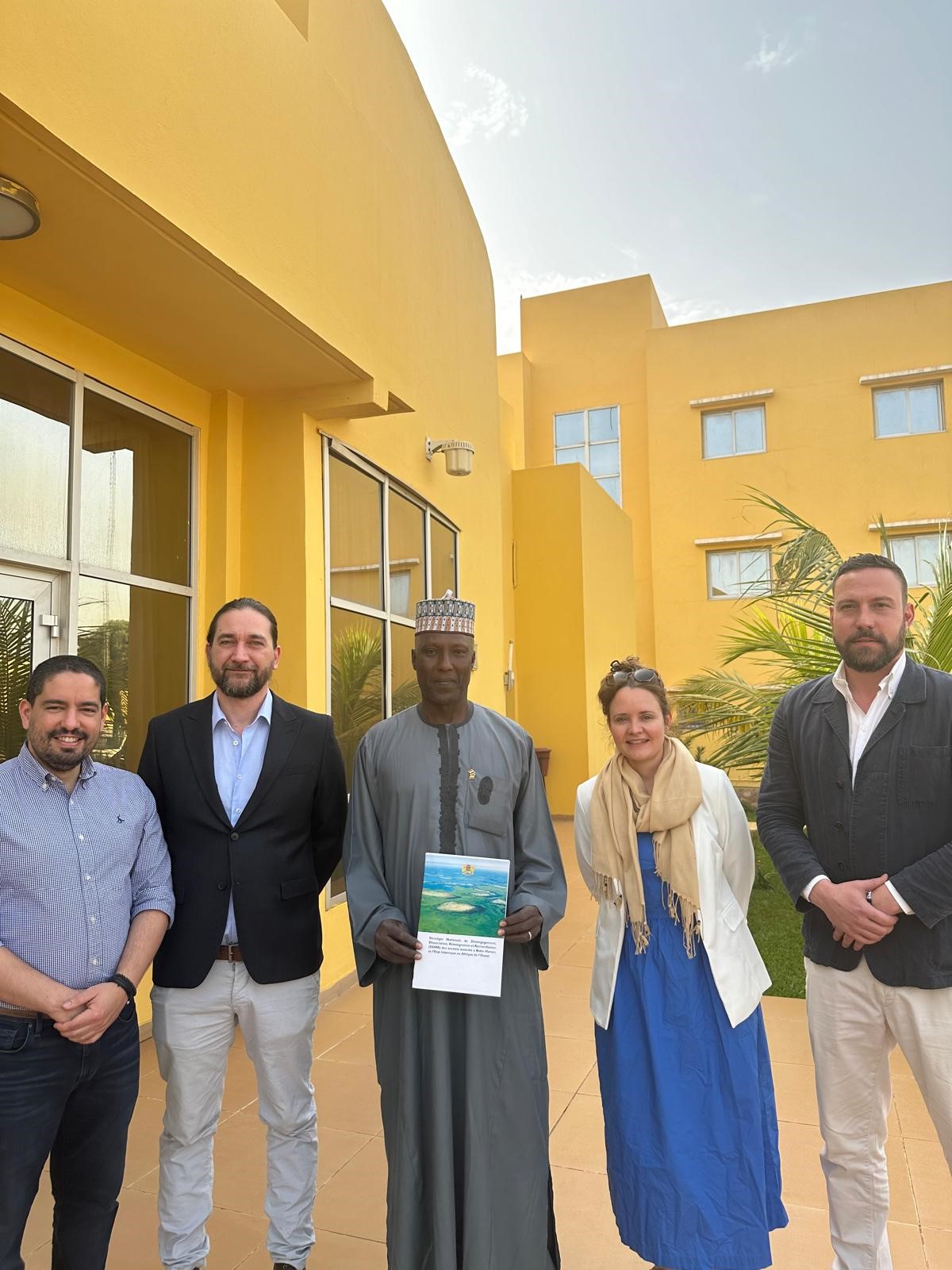
Solutions and Engagement by the DDR Section
The involvement of the DDR Section in Non-Mission Settings like Chad can provide critical support in overcoming these obstacles. By offering technical support and consultation, the DDR Section can help national governments navigate the political dimensions of DDR processes. This support includes facilitating the development of national capacities, providing guidance aligned with international standards, and helping to mediate between competing governmental bodies.
Moreover, the DDR Section can play a vital role in fostering international cooperation and ensuring that DDR processes are inclusive and integrated with the broader peace and reconciliation efforts. By coordinating with other international actors, the DDR Section can help to streamline support and reduce the duplication of efforts, thus enhancing the overall effectiveness and efficiency of the DDR process.

Lessons Learned and Future Directions
The experiences in Chad offer several valuable lessons for DDR in Non-Mission Settings. Firstly, the importance of a clear and transparent communication strategy cannot be overstated, as it builds trust among all stakeholders involved in the DDR process. Secondly, it is crucial to have a well-defined legal and institutional framework that delineates clear roles and responsibilities for all governmental and international actors involved. Lastly, DDR initiatives must be adaptable to the specific political and cultural contexts of the countries in which they are implemented, ensuring that they address the unique challenges and dynamics of each setting.
In conclusion, the case of Chad illustrates both the potential impact and the challenges of implementing DDR in Non-Mission Settings. With strategic engagement and support from entities like the DDR Section in OROLSI/DPO, countries undergoing political transitions can utilize DDR as a powerful tool for peacebuilding and national reconciliation. This approach not only addresses the immediate security concerns but also contributes to the long-term stability and development of post-conflict societies.
3.3 CAMEROON
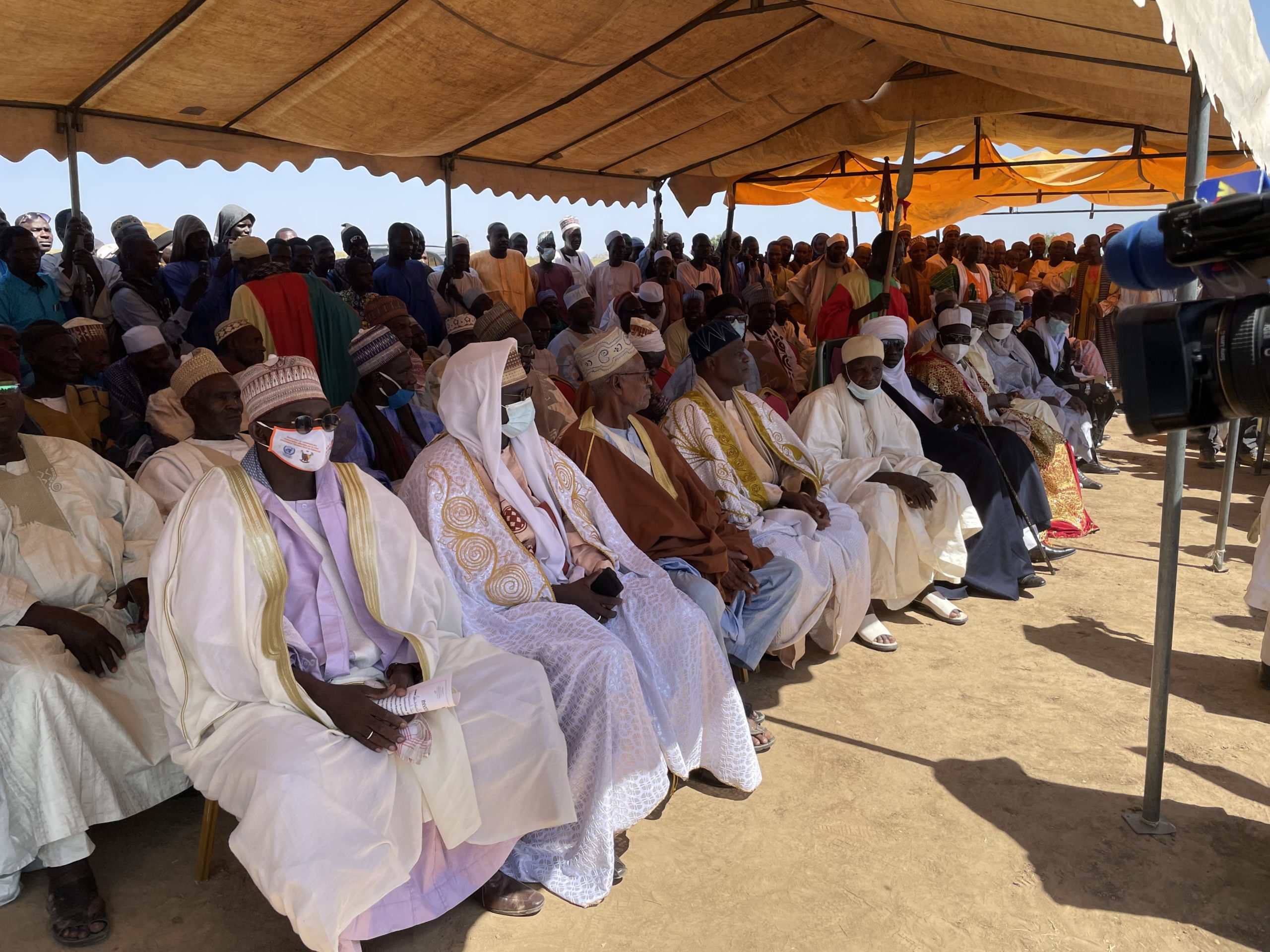
Cameroon is facing three separate crises: one in the Far North Province which is the Southern tip of the area of Boko Haram operations, one in North-West and South-West Provinces affected by the operations of the anglophone separatist groups, and a refugee crisis in the east of the country due to the conflict in the Central African Republic. Through the October 2028 Presidential Decree, establishing the National DDR Committee, the Cameroon DDR Programme was established that extends to the area in the Far North Province and the North-West and South-West Provinces. Currently, the National DDR Committee operates transitional centers in each of these provinces with an additional center under construction in the Far North Province.
DDR is a new area of the Government of Cameroon and while launching operations, the National DDR Committee was also faced with the need to educate its personnel as well as all partner Ministries, territorial administration, civil society organizations and others. The DDR Section, among other UN partners comprising the Cameroon DDR Task Force, has been supporting the Government on this, through support to a dedicated DDR and a separate CVR training for various stakeholders in Yaounde, strategic advice to the National Committee as required and support to the development of the Operational Manual intended for all actors engaged in DDR. Looking forward, the DDR Section will remain engaged, together with key international partners including IOM, on strengthening the capacity of the national Committee to see through a successful DDR Programme.
At the same time, the DDR Section initiated a process that led to the signature of a cooperation agreement between the Government of Cameroon and the Government of Colombia in April 2024, which underscores the importance of inter-governmental experience sharing and collaboration. Both Governments of Cameroon and Colombia are important partners of the DDR Section in further fostering South-South collaboration in the area of DDR.
3.4 THE GREAT LAKES REGION
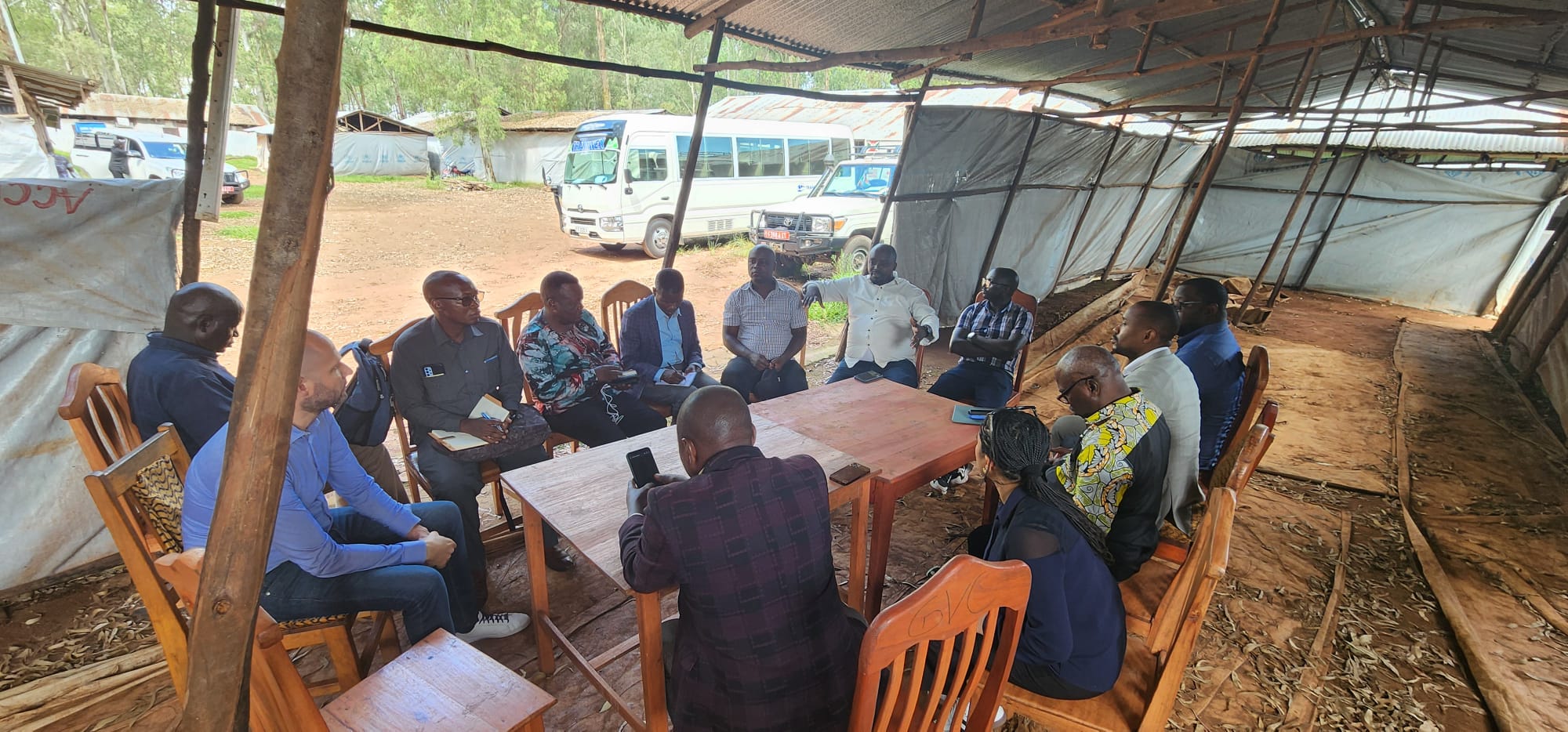
Despite the presence of a Peacekeeping Mission in the Democratic Republic of Congo (DRC) and the Office of the Special Envoy of the Secretary General on the Great Lakes in Burundi, a lot of the nature of the DDR Section’s support in the Great Lakes region is similar to the support provided in other Non-Mission Settings, wherefore this context is presented here.
In the context of the East African Community (EAC)-led Nairobi Process, Congolese armed groups have repeatedly stressed that the presence of foreign armed groups on Congolese territory was one of the reasons they had formed self-defense entities in the absence of the State’s authority in some parts of the country. Consequently, several representatives of Congolese armed groups noted that the repatriation of foreign armed groups was a condition of their disarmament. The presence of foreign armed groups further fuels insecurity through their alliances with certain local armed groups and their involvement in the illicit economy of the region. For this reason, regional problems require a regional solution and from both a political and technical point of view the regional nature of the issue requires a regional mechanism rather than bilateral ones.
The Contact and Coordination Group (CCG) composed of representatives from Uganda, Burundi, Rwanda, the Democratic Republic of Congo (DRC), and Tanzania and the PSC Framework Guarantor institutions was created to promote and coordinate the implementation of a non-military approach targeting foreign armed groups (“negative forces”). The Heads of Intelligence and Security Services of these countries adopted an Action Plan in July 2021 with four objectives: i) engaging negative forces for voluntary disarmament and repatriation as well as undertaking initiatives aimed at cutting off their supply lines at the local, national, and regional levels, and preventing recruitment and illegal flows of small arms and light weapons; ii) improving the national DDR programs through the reinforcement of existing mechanisms and enhancing coordination among national Commissions at the regional level; iii) identifying actions aimed at addressing the root causes driving the activity of negative forces. The DDR Section supports the CCG, through i) technical assistance during the Heads of Intelligence and Security Services Meetings; ii) supports the O-SESG-GL who serve as guarantor of the CCG; and iii) provides DDR policy and planning expertise during CCG strategic assessments/missions.
The Heads of Intelligence and Security Services further decided to establish an Operational Cell composed of detached national experts from each of the five countries (Uganda, Burundi, Rwanda, DRC, and Tanzania) to engage members of the foreign armed groups in the Congolese provinces of Ituri, North Kivu, and South Kivu. The national experts, usually two per country, range from DDR experts, civil and military intelligence, ministry of defense as well as of foreign affairs. The DDR Section supports the Operational Cell through i) capacity-building initiatives and training on the new UN approach to DDR, including relevant modules on Gender-responsive DDR; ii) remote technical assistance during reconnaissance missions to DRC; iii) policy and guidance in support of the operational cell’s internal deliberations, working methods, and drafting of operational documents including repatriation plans, standard operating procedures, and strategic communications. Some of this support is provided in close partnership with the Folke Bernadotte Academy. In line with WPS and YPS, the DDR Section continues to advocate for the participation and representation of youth groups and women-led civil society within the Operational Cell.
Hear our expert interview with Emmanuelle Bernard of the General-Secretary’s Peacebuilding Fund about the Section’s support and collaboration with the fund’s initiatives:
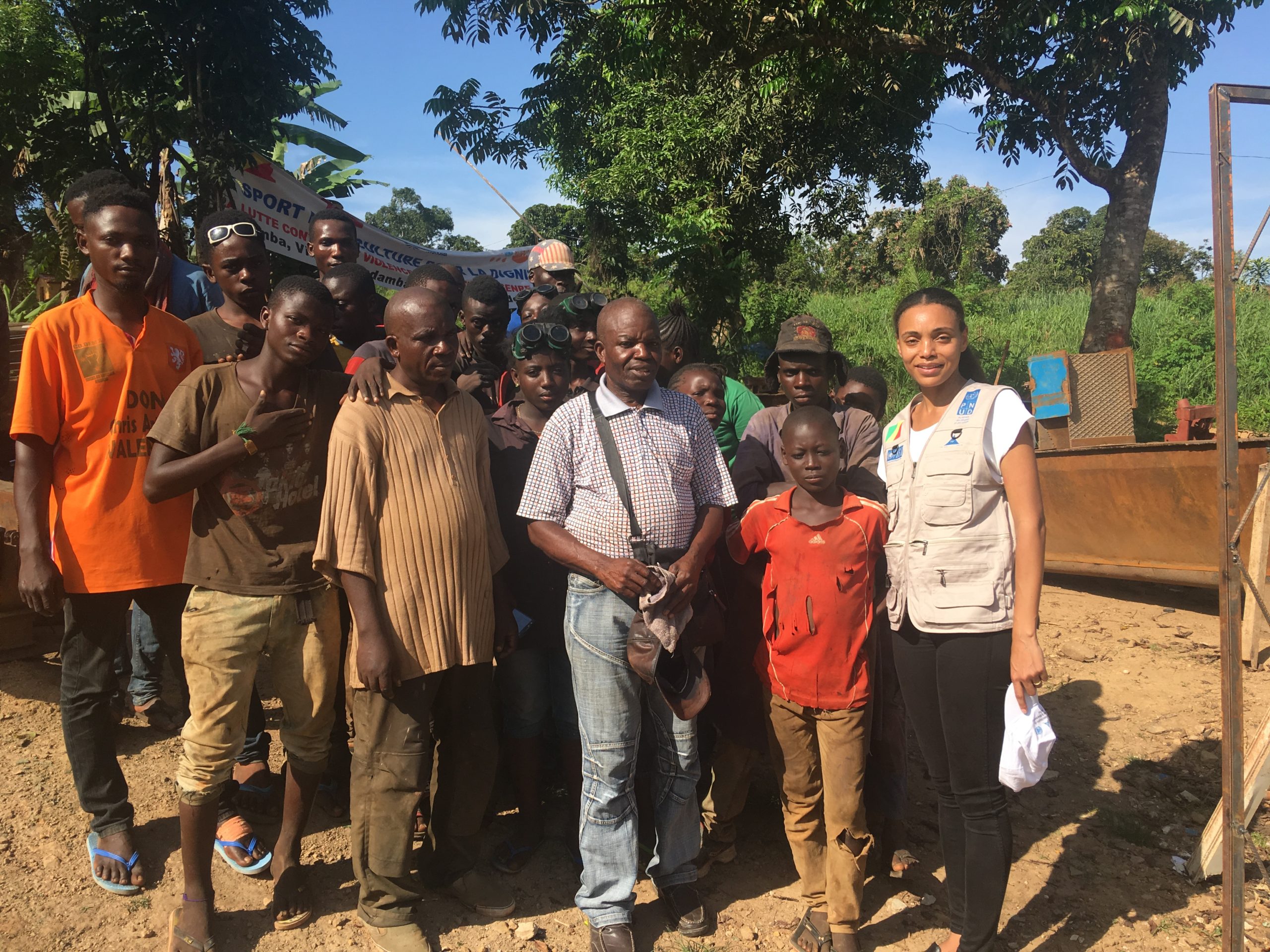
Interview with Emmanuelle Bernard of the Secretary-General's Peacebuilding Fund
3.5 MOZAMBIQUE
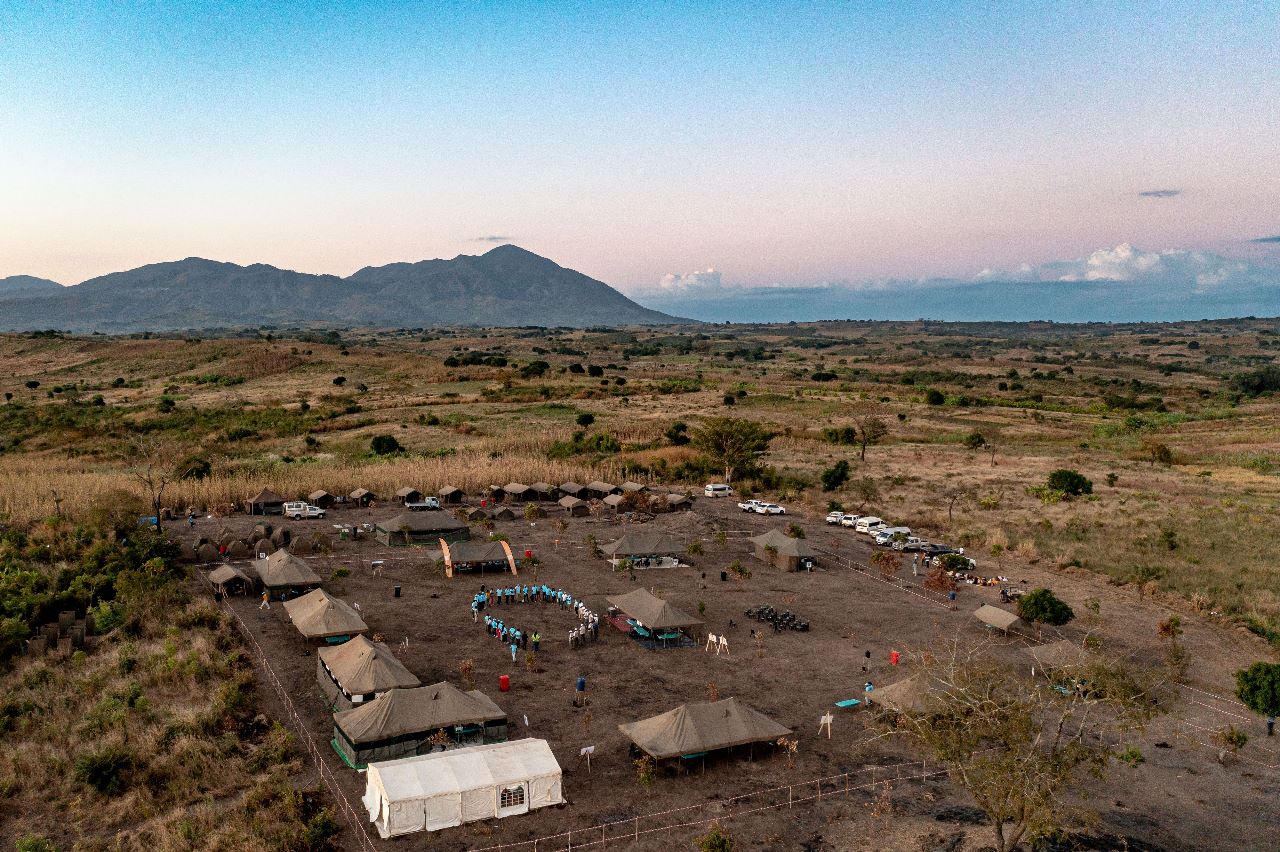
Attending a request from the Personal Envoy of the Secretary-General for Mozambique, the DDR Section provided advice for the Memorandum of Understanding (MoU) between the Government and RENAMO forces and support towards the implementation of the Maputo Peace Agreement. Technical support provided includes sharing international best practices and innovative approaches in support of the DDR process as well as dissemination of the Integrated DDR Standards (IDDRS). In 2021, the DDR Section briefed the UN Peace and Development Advisor (PDA) on disengagement, rehabilitation, and reintegration of members of insurgent groups. In 2024, at the request of Mozambique, the DDR Section participated in the “Conference on Post-Conflict Reintegration in Mozambique: Lessons, challenges and paths for the future”, organized by national authorities and held in Maputo. The DDR Section supported with technical and conceptual expertise drawn from the revised IDDRS and ongoing field operations, with a focus on reintegration models as part of a peace agreement and support to individuals who voluntary leave extremist groups.
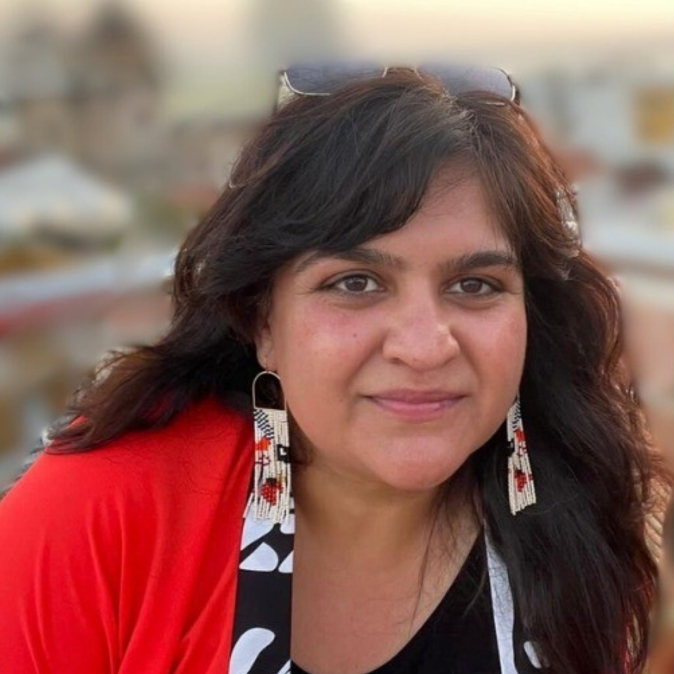
Neha Sanghrajka
Senior Conflict Sensitivity Advisor at UNOPS and Fellow and Senior Advisor at the Geneva Centre for Security Policy (GCSP)
Neha Sanghrajka is a negotiator, mediator, and author with over fifteen years of experience delivering definitive and positive outcomes in high-stakes negotiations, including working for Kofi Annan in Kenya on the 2007 electoral crisis and most recently with the Personal Envoy of the UN Secretary-General for Mozambique as a mediator in talks which led to a ceasefire, peace agreement and successful DDR of over 5000 ex-combatants. Neha has advised senior officials on policy and political strategy in highly complex environments. She is Kenyan, of Asian descent and is a founding member of Women Mediators across the Commonwealth. We conducted an expert interview with Neha. Read below about Neha’s expertise on DDR efforts in Mozambique and the role of the DDR Section!
How did the DDR Section support the Peace Secretariat in advancing the DDR process in Mozambique?
Neha: “As in many peace processes, the DDR programme runs concurrently with many other facets of the peace agreement. Hence, it is a continuous living process in any part of the world. In Mozambique, it was no different. We have learnt by doing in a journey guided by Mozambicans for Mozambicans. As the Mozambican process was nationally led, we could innovate and adapt the process when and as needed. Most importantly it was guided by people’s needs, their aspirations and their hopes. The DDR Section was key in helping to frame and shape Mozambique’s experience by giving us the chance to reflect on what we were doing, enabling us to take the innovative approaches used in Mozambique (such as the application of a gender perspective in all aspects of the process or the use of technology in rural areas to facilitate the disarmament and demobilisation process) and turn them into best practices that other peace process around the world can use. We are very grateful for the DDR section to be part of Mozambique’s peace journey and for helping to turn this story into a cutting-edge successful best practice. Rather than imposing frameworks, they were open to hearing us out on adapting and finding context specific solutions together based on best practices. Of course, the experience in Mozambique will not necessarily fit all DDR programmes around the globe. But with the help of the UN DDR Section the learnings can be shared and made fit for purpose for other contexts. The use of Assembly Areas in rural areas to complete the disarmament and dembolisation, the human centered approach taken, and having former combatants integrated into the national pensions system are some examples I hope can be adapted elsewhere.”
What are some areas of collaboration, including technical support, knowledge exchange and dissemination?
Neha: “The joint work and collaboration with the UN DDR Section has been essential in not only disseminating news and best practices from the Mozambican peace process with the UN system, practitioners, and scholars, through the DDR bulletin itself in which we have featured in several editions. But it has also supported the process with technical support and knowledge exchange. On knowledge exchange, I would like to mention for example the role that the DDR section had in participating in the recent International Conference on Post-Conflict Reintegration in Mozambique. With the help of the DDR Section, Mozambique has been able to showcase its experience from the perspective of its civil society. On the technical side the DDR Section was an important reference point for us while designing the DDR programme. Lessons and best practices were shared on topics such as military base closure procedures from other contexts such as Colombia and South Sudan.“
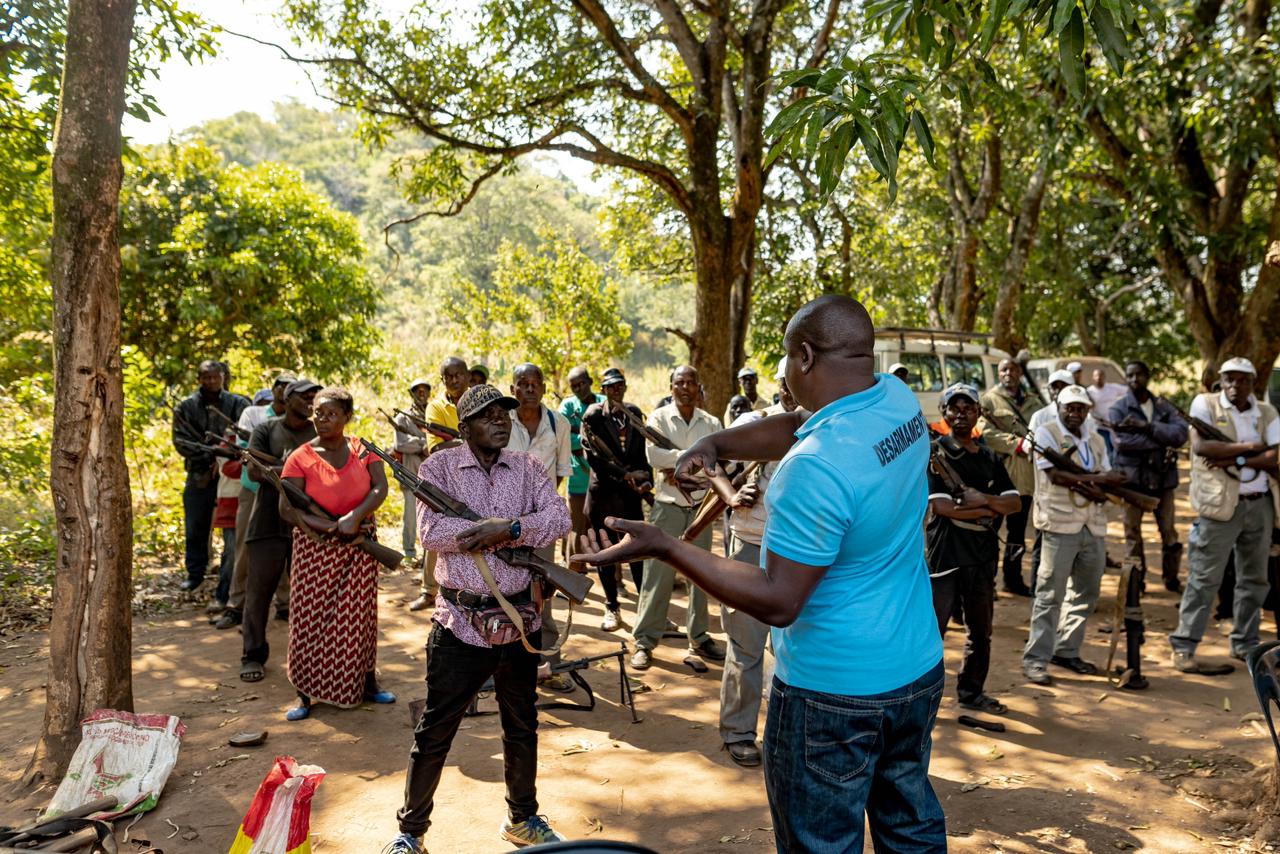
Peace processes are processes that are very dynamic. The collaboration with the Section has been very good, also because they helped us to frame the process itself, helping us to take the right direction.
3.6 NIGER
3.7 GREATER SAHEL
4. NEW CHALLENGES CREATE NEW OPPORTUNITIES
Contents:
- Climate Change and DDR
- Regional Approaches
- Learning Lessons from Mission Settings
In the dynamic ever changing landscape of DDR implementation, the evolution of environments brings forth a host of new challenges alongside promising opportunities. The shifting dynamics of UN engagement, compounded by the escalating effects of climate change, the proliferation of armed groups across borders and the resulting imperative for adopting regional and comprehensive strategies underscore the need for enhanced collaboration within the UN system. These developments present both challenges and opportunities for shaping the trajectory of DDR efforts, especially in Non-Mission Settings.
4.1 CLIMATE CHANGE AND DDR
Climate change has emerged as a pivotal challenge in the ever-evolving landscape of international dynamics. The Intergovernmental Panel on Climate Change (IPCC) defines climate change as alterations in the climate’s state, characterised by shifts in its properties’ mean and/or variability, persisting over extended periods, typically decades or longer. This definition encompasses as range of natural and human-induced factors, with impacts varying regionally and within communities.
Conflicts arising from natural resources stem from a mix of factors, such as severe climate pressures, resource scarcity, mismanagement, and insufficient justice mechanisms. To comprehensively grasp the effects of climate change on armed groups, a three-dimensional perspective is crucial that encompasses the exposure of individuals or communities to climate shocks, their vulnerability, and the coping mechanisms they employ. The DDR Section commissioned a study to enhance DDR practitioners’ awareness of possible links between climate change and recruitment into armed groups as a step towards the development of interventions to address the interconnected challenges of climate, peace and security and to inform new approaches and strategies in Non-Mission Settings.
The data from the study titled “Climate Change and Armed Groups – Strengthening Disarmament, Demobilization, and Reintegration Practitioner’s Analysis of and Response to the Links between Climate Change and Armed Group Recruitment Patterns: A SCORE Analysis in the Tillaberi Region in Niger” reveal correlations among climate pressures, resource scarcity, mismanagement, and insufficient justice mechanisms, indicating a cohesive set of interconnected indicators. The data underscore a climate security nexus, revealing links between climate-driven dynamics and security concerns. Rather than directly driving recruitment for Non-State Armed Groups, climate change acts as a catalyst, worsening conditions that make individuals more susceptible to joining such groups. Additionally, it can worsen existing vulnerabilities and create new challenges, disproportionately affecting marginalised communities. Research findings indicate that individuals experiencing severe climate change consequences are more likely to face increased threats from Non-State Armed Groups and bandits. Additionally, conflicts between herders and farmers create tension. Competing for resources such as land and water frequently leads to escalated conflicts, driving individuals to view violence as justified and seek weapons for protection or assertion. All of these findings arise from a SCORE Analysis in the Tillaberi Region in Niger putting forward that climate change is an aggravating factor leading to an increase in the vulnerability of individuals to recruitment. Beyond its direct impact, climate change therefore serves as a catalyst (for both vulnerabilities of local populations culminating in a higher risk of joining armed groups and for higher risk of conflict) in non-mission settings, necessitating a shift towards regional strategies and a concerted effort for deeper integration within the UN framework.
4.2 REGIONAL APPROACHES
The Lake Chad Basin Commission and the African Union sought DDR support from the United Nations in late 2017, prompted by Security Council resolution 2349 (2017) which “encourages Governments in the region […] to develop and implement a regional and coordinated strategy that encompasses transparent, inclusive, human rights compliant disarmament, demobilisation, deradicalisation, rehabilitation and reintegration initiatives […]”. Working closely with UNDP, the International Organisation for Migration (IOM), the Counter-Terrorism Executive Directorate (CTED), the UN Office on Drugs and Crime (UNODC), and UNICEF, the DDR Section supported the drafting of the Regional Stabilization Strategy (RSS) for countries affected by Boko Haram, focusing particularly on Pillar 3 of the RSS which addresses Disarmament, Demobilization, Rehabilitation, Reinsertion, and Reintegration (DDRRR). Looking at lessons from the regional approach as applied in the Lake Chad Basin, regional approaches appear essential for promoting stability, fostering cooperation, and addressing the interconnected challenges faced in Non-Mission Settings. First, conflict settings in Non-Mission Settings often involve complex dynamics that extend beyond national borders. Regional approaches allow for a more comprehensive understanding of these cross-border dynamics and enable coordinated responses across affected regions. Second, neighbouring countries often share common resources and face similar challenges, such as environmental degradation and economic disparities. Collaborative regional strategies facilitate more efficient resource allocation and concerted efforts to address shared challenges. Third, the multi-faceted nature of conflicts requires a coordinated response involving multiple actors. Regional approaches promote cooperation among neighbouring countries to address root causes, mitigate conflict spill-over, and prevent escalation. Additionally, by fostering capacity-building initiatives and knowledge-sharing platforms, regional approaches enhance the effectiveness of DDR and other peacebuilding efforts.
Based on these assumptions, the DDR Section published a report on DDR in Non-Mission Settings that provided an in-depth analysis of DDR national contexts. As an outcome of the report, it became apparent that several factors led to a rising necessity of regional approaches in DDR efforts. In contexts, where nationally based DDR strategies face effective limits, those challenges can be overcome through cohesive planning and clear operationalisation of regional approaches with support from the DDR Section. The derivations on enhanced necessities of regional approaches include the following:
1. Cross-Border Dynamics
2. Shared Resources and Knowledge
3. Unified Political Strategy
4. Enhanced Monitoring and Evaluation
5. Conflict Sensitivity
6. Economic Integration
7. Mobility and Refugees
8. Legal and Normative Frameworks
9. Peace Agreements
10. Sustainability of Peace Efforts
Regional collaboration in DDR can foster a sense of shared responsibility for peacebuilding, enhancing the sustainability of peace efforts and creating a collective regional identity that transcends individual national interests.
Each of these points illustrates how regional approaches not only address the challenges inherent in DDR processes in Non-Mission Settings but also open up new opportunities for creating lasting peace and stability. By leveraging regional dynamics and cooperation, DDR efforts can be more comprehensive, inclusive, and sustainable.
Nevertheless, comprehensive regional approaches pose several challenges:
How can the DDR Section facilitate regional approaches?
The DDR Section, with its expertise and mandate, is well-positioned to support these efforts, helping to translate challenges into opportunities and ensuring that DDR efforts are both effective and sustainable. This requires a nuanced understanding of regional dynamics and a commitment to collaboration and innovation.
Read the publication by clicking on the button below!
4.3 LEARNING LESSONS FROM MISSION SETTINGS
5. FIELD UPDATES
Ethiopia
In April, the DDR Section along with the Berghof Foundation and their national partner – the Centre for Dialogue, Research, and Cooperation (CDRC) – facilitated a one-day workshop in Addis Abeba with national stakeholders on the politics of DDR. The focus was to support the identification of concrete skills, needs, interests, and barriers to political and civic education of ex-combatants.
Democratic Republic of Congo
In February 2024, the DDR Section, World Bank, PBSO, as well as UNDP and MONUSCO, held a strategic coordination to identify areas of local alignment among the various programming workstreams related to DDR in the DRC. The stronger alignment will support MONUSCO’s withdrawal from South Kivu and the launch of the World Bank’s Stabilization project that includes support to ex-combatants as well as PBF efforts in the country.
Great Lakes/O-SEG-GL
At the invitation of the O-SESG-GL, the DDR Section, alongside PBSO and MONUSCO, participated in a mission of the Contact and Coordination Group (CCG) to Burundi from 7 to 13 March and the Democratic Republic of the Congo (DRC) from 14 to 16 March 2024. The mission pursued the development of operational modalities for the effective disarmament, demobilisation, repatriation, and reintegration of 161 elements from the Forces National de Liberation (FNL) previously identified by the Operational Cell in March 2023. During the mission, the DDR Section in partnership with O-SESG-GL, facilitated peer-to-peer learning between the CCG representatives of Uganda, Tanzania, and DRC in support of Burundian authorities who have recently embarked on articulating a new DDRRR mechanism and legal framework. This informed the development of Burundi’s vision for the reception of ex-FNL members.
Haiti
The DDR Section briefed the ECOSOC Ad Hoc Advisory Group on Haiti on 27 March 2024 on DDR, CVR and WAM efforts in Haiti. At the meeting of the group in April, the Chair and Permanent Representative of Canada to the UN recalled the “excellent briefing” and suggested the organization of a technical workshop on the engagement with armed gangs in Haiti. The focus would be strengthening the capacity and accountability of public institutions, including security and justice sectors through the provision of technical expertise and presentation of past experiences based on South-South Cooperation from the Caribbean region and African contexts.
Lake Chad Basin
In May 2024, the DDR Section participated in the Community-Based Reconciliation and Reintegration (CBRR) workshop held in Abuja, Nigeria, that brought together members of the Lake Chad Basin Commission (LCBC) to discuss and formulate key recommendations for the CBRR policy.
Mozambique
From 21 to 22 March 2024, at the request of Mozambique, the DDR Section participated in the “Conference on Post-Conflict Reintegration in Mozambique: Lessons, challenges and paths for the future”, organized by national authorities and held in Maputo. The DDR Section supported with technical and conceptual expertise drawn from the revised IDDRS and ongoing field operations, with a focus on reintegration models as part of a peace agreement and support to individuals who voluntary leave extremist groups.
Sahel
In collaboration with the Folke Bernadotte Academy (FBA) and the Ecole de Maintien de la Paix Alioun Blondin Beye (EMP) the DDR Section co-facilitated a regional workshop on DDR in Bamako, Mali from 14 to 19 April 2024, to support the identification of common challenges and opportunities to address the security threat posed by armed groups in the Greater Sahel region. The workshop brought together national authorities from Burkina Faso, Cameroon, Chad, Mali, Niger and Nigeria. Participants formulated a set of key DDR recommendations for implementation at local, national and regional level.
Somalia
From 21 to 26 April 2024, a team from the Office of Rule of Law and Security Institutions of the Department of Peace Operations visited Somalia to conduct a joint internal assessment of the mandate implementation of the Rule of Law and Security Institutions section of the United Nations Assistance Mission in Somalia (UNSOM).
Integrated DDR Training Group Meeting in Egypt
From 04 to 07 March, the DDR Section participated in the 20th Annual General and Extraordinary Meetings of the Integrated DDR Training Group (IDDRTG), hosted by the Cairo International Center for Conflict Resolution, Peacekeeping and Peacebuilding (CCCPA) in Cairo, Egypt. During the Extraordinary Meeting, which took place under the topic “Advancing Regionally and Nationally-Owned DDR Processes: A Path to Stability, Recovery and Lasting Peace”, the IDDRTG was joined by representatives of national DDR commissions and related entities from Cameroon, Mali, Niger, Nigeria, and South Sudan as well as representatives from ATMIS, AU Centre for Post-Conflict Reconstruction & Development in Cairo, AU Liaison Office Great Lakes/Burundi, the Centre National d’Etudes Stratégiques of Burkina Faso, IOM Egypt, Japanese Embassy, UNDP Borno, and researchers from BICC and Transition International. Key topics discussed included the role of receiving communities and local actors, the importance of economic perspectives and political will, as well as challenges related to cross-border movements and funding for DDR.
South Sudan
The DDR Section continues to provide support to the SSR-CVR Unit of UNMISS in South Sudan. Most recently conversing on potential entry points to engage on Weapon and Ammunition Management (WAM) activities to support CVR and DDR efforts, reviewing CVR project proposals, and remotely supporting the Security Council Affairs Division (SCAD) with their benchmark assessment mission. The DDR Section is also engaged with relevant regional partners, like the AU, who are interested in furthering their support to South Sudan especially given this is an election year.
6. IDDRS Update
In March 2024, the Inter-Agency Working Group on DDR (IAWG-DDR) co-chairs launched a search tool for the Integrated DDR Standards (IDDRS). The UN DDR resource center/IDDRS website can now be navigated with the help of a search tool. The search function makes it easier to find information quickly throughout all IDDRS modules and improves the user experience when searching for specific information in the IDDRS. This search function was made possible through the support from the Bonn International Center for Conflict Studies (BICC).
The search tool can be found in the menu in the top right corner of the UN DDR resource center or by clicking here:

7. RECENT PUBLICATIONS
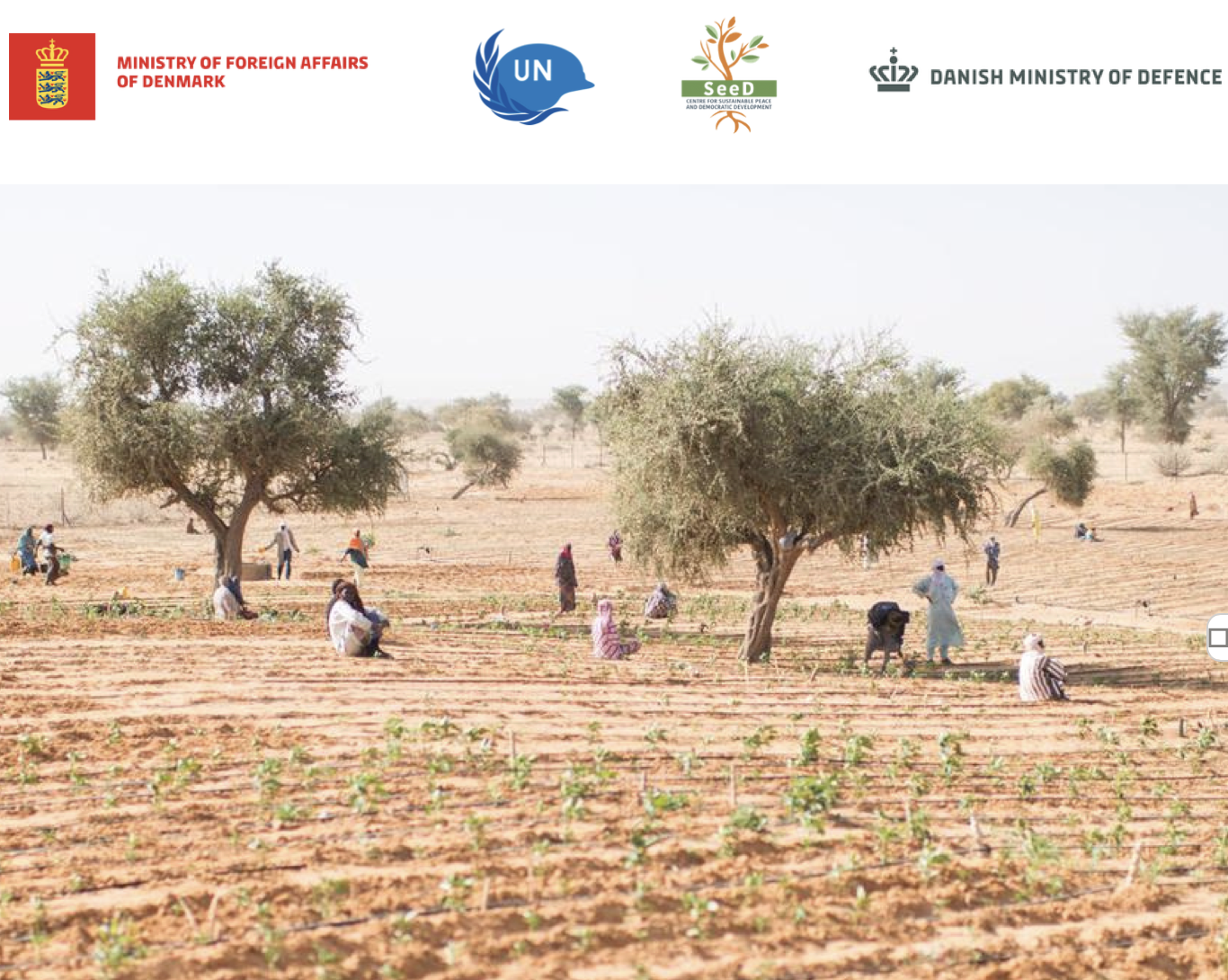
Climate Change and Armed Groups
A study “Climate Change and Armed Groups – Strengthening Disarmament, Demobilization, and Reintegration Practitioner’s Analysis of and Response to the Links between Climate Change and Armed Group Recruitment Patterns: A SCORE Analysis in the Tillaberi Region in Niger”. The study aims to enhance DDR practitioners’ awareness of possible links between climate change and recruitment into armed groups as a step towards the development of interventions to address the interconnected challenges of climate, peace and security and to inform new approaches and strategies in non-mission settings. Read the full report here and the key takeaways here.

Lessons Learned Exercise on DDR and CVR in Mali
A Lessons Learned report on DDR and CVR in Mali that is a contextualized historical and analytical account of key developments and lessons from DDR, Integration, and CVR projects in Mali across four distinct phases. OECD-DPO study on “Conflict Transformation and the Role of Responsible Artisanal and Small-Scale Mining” was launched in Kinshasa in May 2024. The report, which is a co-draft between OECD and the OROLSI DDR Section, explores the feasibility of operationalizing the linkages between due diligence interventions for mineral supply chains and DDR processes in the eastern Democratic Republic of the Congo. Read the report here
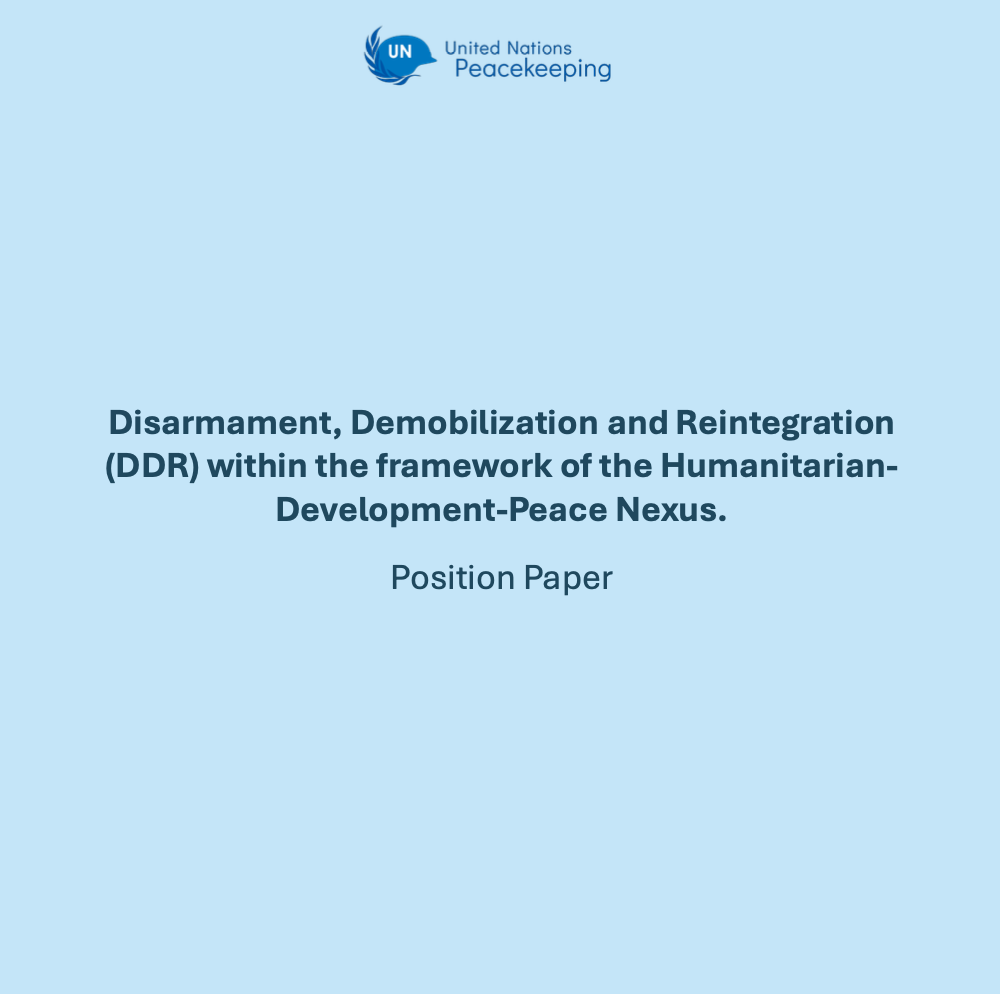
Disarmament, Demobilisation and Reintegration (DDR) within the framework of the Humanitarian-Development-Peace Nexus
Position Paper on DDR within the Framework of the Humanitarian-Development-Peace Nexus: the position paper highlights key elements in Disarmament, Demobilization, and Reintegration (DDR), specifically within the framework of the Humanitarian-Development-Peace Nexus (HDPN). Against the backdrop of an evolving conflict landscape characterized by growing DDR needs in both mission and non-mission settings, key highlights in this document include:
- Showcasing DDR practitioners’ contributions in non-mission settings, building on the tools that have been honed and developed in mission and transition contexts.
- Leveraging Community Violence Reduction (CVR), and other DDR-related tools, as a platform to promote collaboration between humanitarian, development, and peace actors.
- Highlighting the substantial progress made by UN agencies funds and programmes in DDR as part of their efforts to ‘do no harm’ and contribute to peacebuilding outcomes.
The paper explores how DDR is informed by and contributes to the humanitarian-development-peace nexus approach. To this end, the paper makes a number of recommendations, including further research and knowledge gathering, as well as ways to more explicitly embed the nexus approach in DDR practice.
Download the position paper here!
Upcoming events and trainings
Training Opportunities
Upcoming opportunities include:
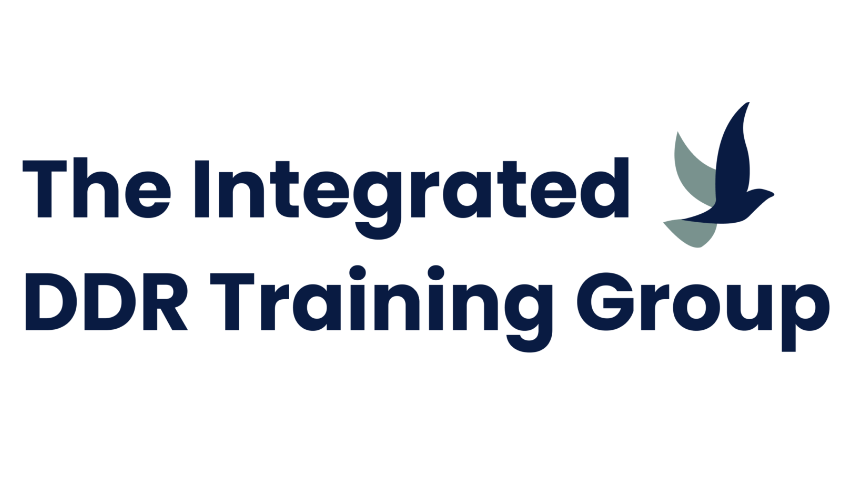
Integrated DDR Training Group
The Integrated Disarmament, Demobilization and Reintegration Training Group (IDDRTG) is a community of a total of 20 international organizations and training institutes with a common goal of developing and sharing training materials relating to the DDR-field.
The website is regularly updated with upcoming training events: https://iddrtg.org
Laying the ground for Peace: A Holistic Approach to Community Violence Reduction
27 May – 31st May 2024
Stans
Course on Disarmament, Demobilization and Reintegration in the framework of Security Transition and Peacebuilding
27 November – 6 December 2024
Barcelona, Spain
TOOLS & RESOURCES
With thanks to Ambassador Mirko Manzoni, ASG Alexandre Zouev, Tilmann Scherf, Catharina Goldschmidt, Sophie Lesselin, Emmanuelle Bernard, Neha Sanghrajka, Thomas Kontogeorgos, Mario Nascimento, Sergiusz Sidorowicz, Kwame Poku, Marc Schibli, Anne Kristina Novak, Lea Akossiwa Koudjou, Patrick Ertelt, Apolline Barille, and the entire DDRS team. Special thanks to all colleagues and partners who have worked and/or are currently working on and in Non-Mission Settings.
